Berlin Stories 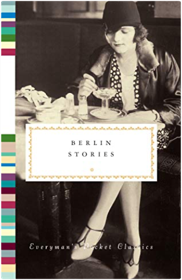 Democracy in America (Everyman's Library (Cloth)) 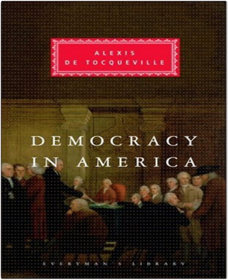 Florence Stories 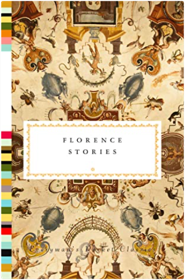 The Koran 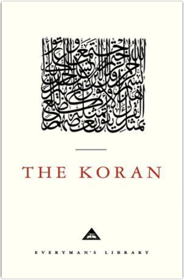 Love Speaks Its Name: Gay and Lesbian Love Poems 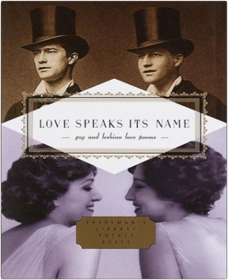 Stories of Books and Libraries 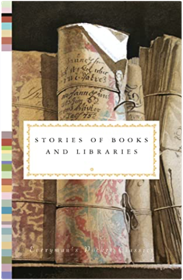 Stories of Southern Italy 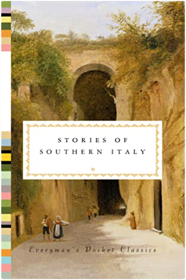 Venice Stories 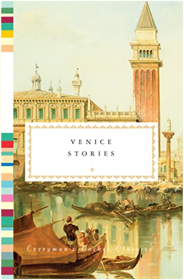 The African Trilogy: Things Fall Apart, No Longer at Ease, and Arrow of God (Everyman's Library (Cloth)) 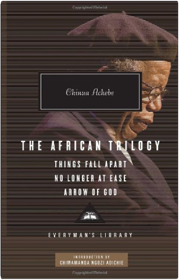 Beginning with the best-selling Things Fall Apart—on the heels of its fiftieth anniversary—The African Trilogy captures a society caught between its traditional roots and the demands of a rapidly changing world. Achebe’s most famous novel introduces us to Okonkwo, an important member of the Igbo people, who fails to adjust as his village is colonized by the British. In No Longer at Ease we meet his grandson, Obi Okonkwo, a young man who was sent to a university in England and has returned, only to clash with the ruling elite to which he now believes he belongs. Arrow of God tells the story of Ezuelu, the chief priest of several Nigerian villages, and his battle with Christian missionaries. In these masterful novels, Achebe brilliantly sets universal tales of personal and moral struggle in the context of the tragic drama of colonization. THINGS FALL APART (Everyman's Library) 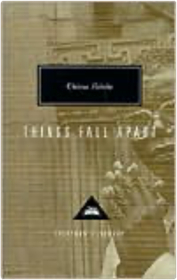 The Oresteia: Agamemnon, Choephoroe, Eumenides 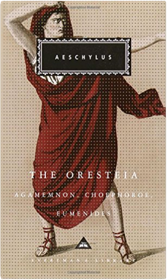 The three plays of the Oresteia portray the bloody events that follow the victorious return of King Agamemnon from the Trojan War, at the start of which he had sacrificed his daughter Iphigeneia to secure divine favor. After Iphi-geneia’s mother, Clytemnestra, kills her husband in revenge, she in turn is murdered by their son Orestes with his sister Electra’s encouragement. Orestes is pursued by the Furies and put on trial, his fate decided by the goddess Athena. Far more than the story of murder and ven-geance in the royal house of Atreus, the Oresteia serves as a dramatic parable of the evolution of justice and civilization that is still powerful after 2,500 years. The trilogy is presented here in George Thomson’s classic translation, renowned for its fidelity to the rhythms and richness of the original Greek. (Book Jacket Status: Jacketed) The Divine Comedy: Inferno; Purgatorio; Paradiso 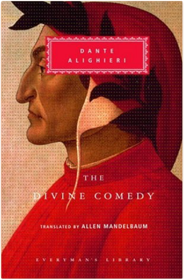 Mandelbaum’s astonishingly Dantean translation, which captures so much of the life of the original, renders whole for us the masterpiece of that genius whom our greatest poets have recognized as a central model for all poets. This Everyman’s edition–containing in one volume all three cantos, Inferno, Purgatorio, and Paradiso–includes an introduction by Nobel Prize—winning poet Eugenio Montale, a chronology, notes, and a bibliography. Also included are forty-two drawings selected from Botticelli's marvelous late-fifteenth-century series of illustrations. (Book Jacket Status: Jacketed) London Fields 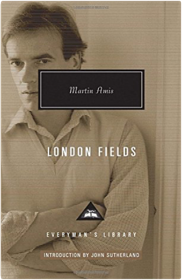 First published in 1989, LONDON FIELDS is set ten years into a dark future, against a backdrop of environmental and social decay and the looming threat of global cataclysm. As the dreaded millennium approaches, Nicola Six, a “black hole” of sex and self-loathing, attempts to orchestrate her own extinction, choosing her thirty-fifth birthday, November 5, 1999, as the date of her murder. Whom to manipulate into killing her is the question; her choice wavers between violent lowlife Keith Talent, who is obsessed with winning a darts tournament, and a dimly romantic banker named Guy Clinch. When Samson Young—a writer suffering from a long bout of writer’s block—stumbles upon these three, he believes he has found a story that will write itself. A highly unusual mystery with an unexpected twist at the end, LONDON FIELDS is also a corrosively funny narrative of pyrotechnic complexity and scalding moral vision. (Book Jacket Status: Jacketed) Foundation, Foundation and Empire, Second Foundation (Everyman's Library (Cloth)) 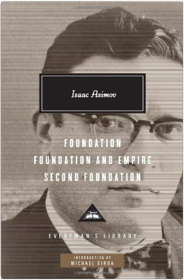 It is the saga of the Galactic Empire, crumbling after twelve thousand years of rule. And it is the particular story of psychohistorian Hari Seldon, the only man who can see the horrors the future has in store—a dark age of ignorance, barbarism, and violence that will last for thirty thousand years. Gathering a band of courageous men and women, Seldon leads them to a hidden location at the edge of the galaxy, where he hopes they can preserve human knowledge and wisdom through the age of darkness. In 1966, the Foundation trilogy received a Hugo Award for Best All-Time Series, and it remains the only fiction series to have been so honored. More than fifty years after their original publication, the three Foundation novels stand as classics of thrilling, provocative, and inspired world-building. The Handmaid's Tale 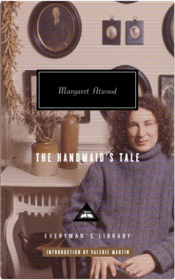 A gripping vision of our society radically overturned by a theocratic revolution, Margaret Atwood’s The Handmaid's Tale has become one of the most powerful and most widely read novels of our time. Offred is a Handmaid in the Republic of Gilead, serving in the household of the enigmatic Commander and his bitter wife. She may go out once a day to markets whose signs are now pictures because women are not allowed to read. She must pray that the Commander makes her pregnant, for in a time of declining birthrates her value lies in her fertility, and failure means exile to the dangerously polluted Colonies. Offred can remember a time when she lived with her husband and daughter and had a job, before she lost even her own name. Now she navigates the intimate secrets of those who control her every move, risking her life in breaking the rules. Like Aldous Huxley’s Brave New World and George Orwell’s Nineteen Eighty-Four, The Handmaid's Tale has endured not only as a literary landmark but as a warning of a possible future that is still chillingly relevant. Auden: Poems (Everyman's Library Pocket Poets) 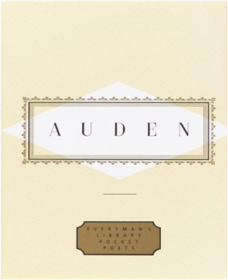 The Confessions 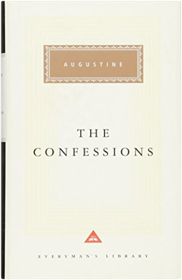 As Augustine explains how, when, and why he became the man he is, he probes the great themes that others were to explore after himCfaith, time, truth, identity, and self-understanding—with a richness of detail unmatched in ancient literature. Dense with vivid portrayals of friends, family, colleagues, and enemies, The Confessions chronicles the passage from a life of sensuality and superstition to a genuine spiritual awakening—in a powerful narrative of one man's inner education that continues to shape the way we think and act today. (Book Jacket Status: Not Jacketed) Meditations (Everyman's Library (Cloth)) 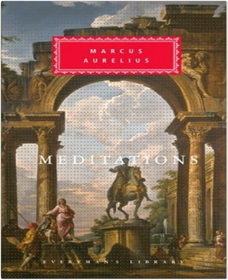 Persuasion 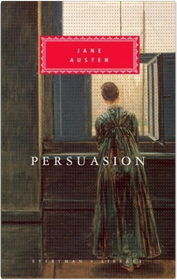 Of all Jane Austen’s great and delightful novels, Persuasion is widely regarded as the most moving. It is the story of a second chance. Anne Elliot, daughter of the snobbish, spendthrift Sir Walter Elliot, is a woman of quiet charm and deep feelings. When she was nineteen, she fell in love with–and was engaged to–a naval officer, the fearless and headstrong Captain Wentworth. But the young man had no fortune, and Anne allowed herself to be persuaded, against her profoundest instinct, to give him up.Now, at twenty-seven, and believing that she has lost her bloom, Anne is startled to learn that Captain Wentworth has returned to the neighborhood, a rich man and still unwed. Her never-diminished love is muffled by her pride. He seems cold and unforgiving. Even worse, he appears to be infatuated by the flighty and pretty Louisa Musgrove. What happens as Anne and Wentworth are thrown together in the social world of Bath–and as an eager new suitor appears for Anne–is touchingly and wittily told in a masterpiece that is also one of the most entrancing novels in the English language. Pride and Prejudice (Everyman's Library) 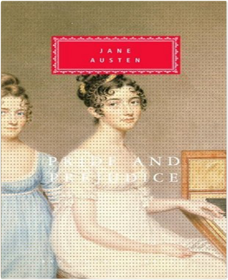 Sense and Sensibility 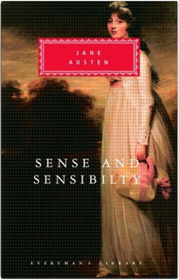 The Fire Next Time; Nobody Knows My Name; No Name in the Street; The Devil Finds Work: Introduction by Eddie S. Glaude Jr. 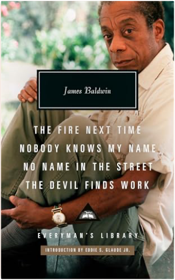 Giovanni's Room 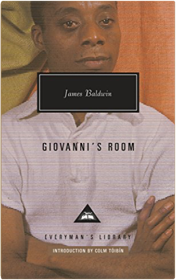 Go Tell It on the Mountain 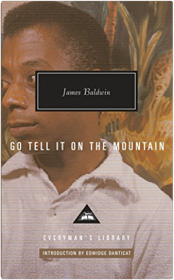 Old Goriot (Everyman's Library (Cloth)) 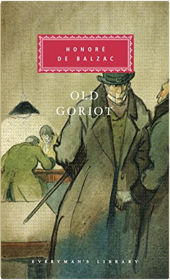 Rastignac is appalled at first by the greed and corruption he finds in Paris, but he soon sets his sights on conquering high society. He joins forces with the array of schemers who surround him, while the suffering, self-sacrificing Goriot yearns in vain for his daughters’ love. The sprawling, vibrant, and turbulent Paris of the post-Napoleonic era is itself a major character in the novel, an emblem of the social upheaval that Balzac portrays so brilliantly. Old Goriot was the first of Balzac’s novels to employ his famous technique of recurring characters, and it has come to be seen as the keystone in his grand project, The Human Comedy. Translated by Ellen Marriage (Book Jacket Status: Not Jacketed) Eugenie Grandet 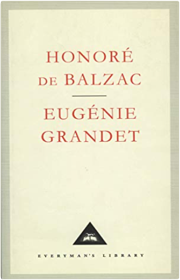 The Book of Evidence, The Sea (Everyman's Library (Cloth)) 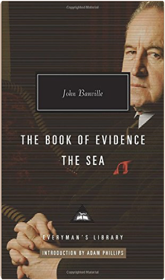 The Book of Evidence is a brilliantly disturbing portrait of an improbable murderer. Freddie Montgomery is an aimless, eccentric, and highly cultured man whose arrest for the murder of a servant girl prompts him to offer the reader an extended testimony. However, the evidence Freddie offers is not of his innocence, but of his life—of the circumstances that led to and (in his chillingly amoral mind) justified his grisly crime. Hauntingly reminiscent of Camus, Dostoevsky, and Nabokov, The Book of Evidence is among the most darkly compelling novels in international literature. The Sea follows retired art historian Max Morden to the seaside town where he spent his childhood summers. Max is grieving the loss of his wife, Anna, but returning to the seaside brings back intense memories of the wealthy and mysterious family in whose presence he had first learned about love and loss. Banville’s exploration of the unpredictable power of memory—a force as treacherous as the sea that pulses through the story. What Max comes to understand about the past, and about its indelible effects on him—is at the center of this elegiac, vividly dramatic, beautifully written novel. Flaubert's Parrot; A History of the World in 10 1/2 Chapters (Everyman's Library (Cloth)) 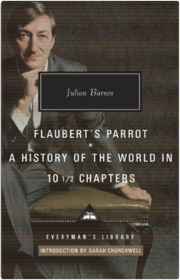 Flaubert's Parrot, Julian Barnes's breakthrough book—shortlisted for the Booker Prize in 1984—is the story of Geoffrey Braithwaite, a retired doctor who is obsessed with the French author and with tracking down a stuffed parrot that once inspired him. Barnes playfully combines a literary detective story with a character study of its detective, embedded in a brilliant riff on literary genius. A History of the World in 10 1/2 Chapters is a mix of fictional and historical narratives of voyage and discovery—ranging from a woodworm's perspective on Noah's ark to a survivor from the sinking of the Titanic—that question our ideas of history. One of his most inventive works, it was praised by Salman Rushdie as "frequently brilliant, funny, thoughtful, iconoclastic, and a delight to read." The Garden of the Finzi-Continis 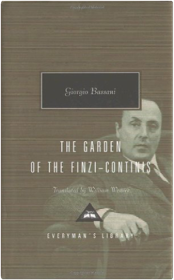 Giorgio Bassani’s acclaimed novel of unrequited love and the plight of the Italian Jews on the brink of World War II has become a classic of modern Italian literature. Made into an Academy Award—winning film in 1970, The Garden of the Finzi—Continis is a richly evocative and nostalgic depiction of prewar Italy. The narrator, a young middle-class Jew in the Italian city of Ferrara, has long been fascinated from afar by the Finzi-Continis, a wealthy and aristocratic Jewish family, and especially by their daughter Micol. But it is not until 1938 that he is invited behind the walls of their lavish estate, as local Jews begin to gather there to avoid the racial laws of the Fascists, and the garden of the Finzi-Continis becomes an idyllic sanctuary in an increasingly brutal world. Years after the war, the narrator returns in memory to his doomed relationship with the lovely Micol, and to the predicament that faced all the Ferrarese Jews, in this unforgettably wrenching portrait of a community about to be destroyed by the world outside the garden walls. Baudelaire: Poems (Everyman's Library Pocket Poets) 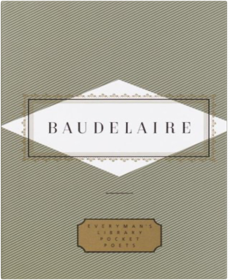 Molloy, Malone Dies, The Unnamable (Everyman's Library) 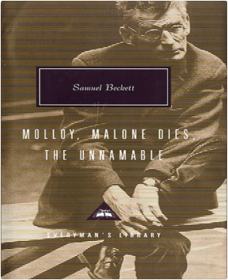 Poems and Prophecies 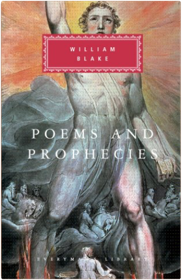 Blake: Poems (Everyman's Library Pocket Poets) 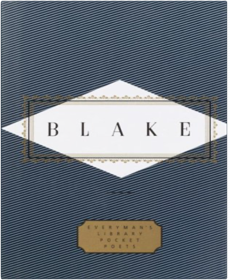 Decameron 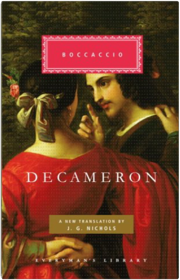 In the summer of 1348, with the plague ravaging Florence, ten young men and women take refuge in the countryside, where they entertain themselves with tales of love, death, and corruption, featuring a host of characters, from lascivious clergymen and mad kings to devious lovers and false miracle-makers. Named after the Greek for “ten days,” Boccaccio’s book of stories draws on ancient mythology, contemporary history, and everyday life, and has influenced the work of myriad writers who came after him. J. G. Nichols’s new translation, faithful to the original but rendered in eminently readable modern English, captures the timeless humor of one of the great classics of European literature. Ficciones (Everyman's Library Series) 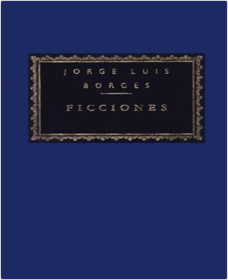 The Life of Samuel Johnson 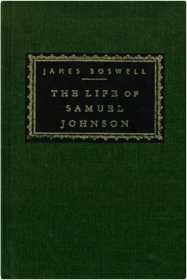 The Stories of Ray Bradbury 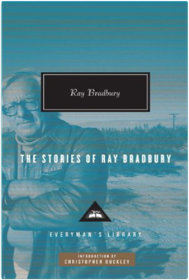 Here are the Martian stories, tales that vividly animate the red planet, with its brittle cities and double-mooned sky. Here are the stories that speak of a special nostalgia for Green Town, Illinois, the perfect setting for a seemingly cloudless childhood—except for the unknown terror lurking in the ravine. Here are the Irish stories and the Mexican stories, linked across their separate geographies by Bradbury’s astonishing inventiveness. Here, too, are thrilling, terrifying stories—including “The Veldt” and “The Fog Horn”—perfect for reading under the covers. Read for the first time, these stories become as unshakable as one’s own fantasies. Read again—and again—they reveal new, dazzling facets of the extraordinary art of Ray Bradbury. The Physiology of Taste: or Meditations on Transcendental Gastronomy 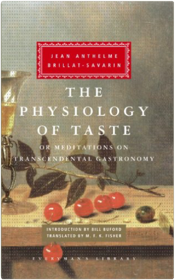 First published in France in 1825 and continuously in print ever since, The Physiology of Taste is a historical, philosophical, and ultimately Epicurean collection of recipes, reflections, and anecdotes on everything and anything gastronomical. Brillat-Savarin, who spent his days eating through the famed food capital of Dijon, lent a shrewd, exuberant, and comically witty voice to culinary matters that still resonate today: the rise of the destination restaurant, diet and weight, digestion, and taste and sensibility. Agnes Grey, The Tenant of Wildfell Hall 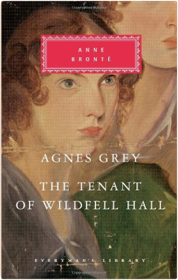 Anne Brontë wrote these two fantastically successful novels just before her tragically early death, both of them in a much more grittily realistic mode than the more romantic ones favored by her sisters. Agnes Grey, the story of a governess working for disdainful and cruel employers, is a wrenching account of the desperate straits faced by Victorian women without money or husband. The Tenant of Wildfell Hall tells a story that was shocking for its time: a woman leaves her alcoholic and abusive husband in order to protect their young son and must live in hiding to prevent the law from taking her child away from her. These novels have become classics not only by dint of the subtle and ironic force of Anne Brontë's prose but because of the passionate indictments of social injustice that animate them. Jane Eyre (Everyman's Library (Cloth)) 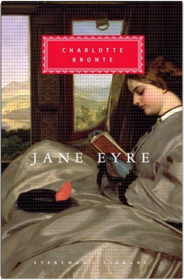 Charlotte Brontë’s novel about the passionate love between Jane Eyre, a young girl alone in the world, and the rich, brilliant, domineering Rochester has, ever since its publication in 1847, enthralled every kind of reader, from the most critical and cultivated to the youngest and most unabashedly romantic. It lives as one of the great triumphs of storytelling and as a moving affirmation of the prerogatives of the heart in the face of disappointment and misfortune. Jane Eyre has enjoyed huge popularity since first publication, and its success owes much to its exceptional emotional power. Shirley and The Professor 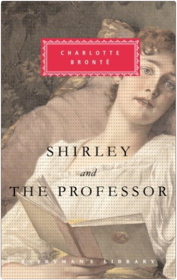 These two classic novels, together with Brontë's well-known Jane Eyre and Villette, comprise a magnificent oeuvre, each one a singular achievement of characterization, human understanding, and narrative elegance and drama. Shirley is the story of a complicated friendship between two very different women: shy and socially constrained Caroline, the poor niece of a tyrannical clergyman; and the independent heiress Shirley, who has both the resources and the spirit to defy convention. The romantic entanglements of the two women with a local mill owner and his penniless brother pit the claims of passion against the boundaries of class and society. The Professor—the first novel Brontë completed, the last to be published—is both a disturbing love story and the coming-of-age tale of a self-made man. At its center is William Crimsworth, who has come to Brussels to work as an instructor in a school for girls. When he becomes entangled with Zoräide Reuter, a charismatic and brilliantly intellectual woman, the fervor of her feelings threatens both her own engagement and William's chance of finding true love. Wuthering Heights 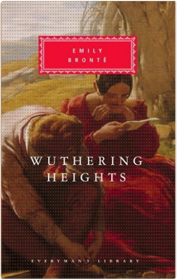 Virginia Woolf said of Emily Brontë that her writing could "make the wind blow and the thunder roar," and so it does in Wuthering Heights. Catherine Earnshaw, Heathcliff, and the windswept moors that are the setting of their mythic love are as immediately stirring to the reader of today as they have been for every generation of readers since the novel was first published in 1847. With an introduction by Katherine Frank. Emily Bronte: Poems : Pocket Poets (Everyman's Library Pocket Poets) 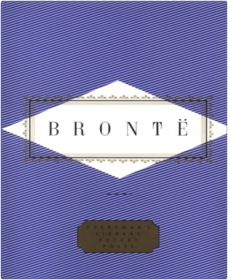 The Master and Margarita 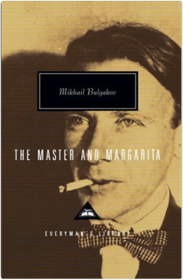 The underground masterpiece of twentieth-century Russian fiction, Mikhail Bulgakov’s THE MASTER AND MARGARITA was written during Stalin’s regime and could not be published until many years after its author’s death. When the devil arrives in 1930s Moscow, consorting with a retinue of odd associates—including a talking black cat, an assassin, and a beautiful naked witch—his antics wreak havoc among the literary elite of the world capital of atheism. Meanwhile, the Master, author of an unpublished novel about Jesus and Pontius Pilate, languishes in despair in a pyschiatric hospital, while his devoted lover, Margarita, decides to sell her soul to save him. As Bulgakov’s dazzlingly exuberant narrative weaves back and forth between Moscow and ancient Jerusalem, studded with scenes ranging from a giddy Satanic ball to the murder of Judas in Gethsemane, Margarita’s enduring love for the Master joins the strands of plot across space and time. The White Guard: Introduction by Orlando Figes 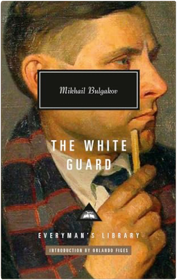 Byron: Poems (Everyman's Library Pocket Poets) 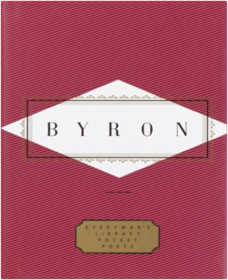 If on a Winter's Night a Traveler (Everyman's Library (Cloth)) 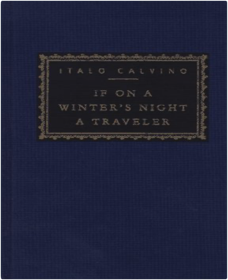 The Plague, The Fall, Exile and the Kingdom, and Selected Essays (Everyman's Library) 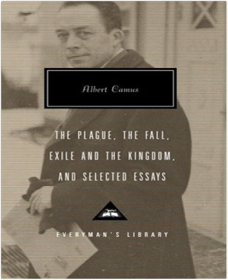 From one of the most brilliant and influential thinkers of the twentieth century–two novels, six short stories, and a pair of essays in a single volume. In both his essays and his fiction, Albert Camus (1913—1960) de-ployed his lyric eloquence in defense against despair, providing an affirmation of the brave assertion of humanity in the face of a universe devoid of order or meaning. The Plague–written in 1947 and still profoundly relevant–is a riveting tale of horror, survival, and resilience in the face of a devastating epidemic. The Fall (1956), which takes the form of an astonishing confession by a French lawyer in a seedy Amsterdam bar, is a haunting parable of modern conscience in the face of evil. The six stories of Exile and the Kingdom (1957) represent Camus at the height of his narrative powers, masterfully depicting his characters–from a renegade missionary to an adulterous wife –at decisive moments of revelation. Set beside their fictional counterparts, Camus’s famous essays “The Myth of Sisyphus” and “Reflections on the Guillotine” are all the more powerful and philosophically daring, confirming his towering place in twentieth-century thought. Oscar and Lucinda, True History of the Kelly Gang 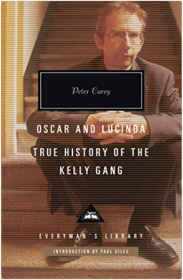 Oscar and Lucinda is a sweeping, irrepressibly inventive novel set in nineteenth-century Australia. Oscar, a nervous Anglican minister who gambles on the instructions of the Divine, joins forces with Lucinda, a teenaged heiress who buys a glassworks to help liberate her sex. The resulting narrative tangle of love, commerce, religion, and colonialism culminates in a half-mad expedition to transport a glass church across the Outback. In True History of the Kelly Gang, the legendary Australian outlaw Ned Kelly speaks for himself, scribbling his narrative in semiliterate but magically descriptive prose as he flees from the police. To his pursuers, Kelly is nothing but a monstrous criminal, but to his own people he is a hero defying the authority of the English. In a dazzling act of ventriloquism, Peter Carey brings the famous bushranger wildly and passionately to life. The Bloody Chamber, Wise Children, Fireworks  History of My Life 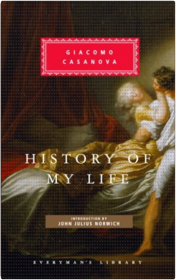 The name of Giacomo Casanova, Chevalier de Seingalt (1725-98), is now synonymous with amorous exploits, and there are plenty of these, vividly narrated, in his memoirs. But Casanova was not just an energetic lover. In his time he was a diplomat, businessman, trainee priest, traveler, prisoner, magician, confidence man, gambler, professional entertainer, and charlatan. He financed business projects, organized lotteries, wrote opera libretti, and dabbled in high politics. Above all he was an autobiographer of enduring brilliance and subtlety who left behind him what is probably the most remarkable confession ever written. Casanova explored to the full all the possibilities eighteenth-century Venice offered by way of love and profit before being imprisoned, escaping from jail, and fleeing from the city to begin travels that took him across Europe. In Moscow and London, Berlin and Constantinople, he met the famous men and women of his time—Catherine the Great, Voltaire, Louis XV, Rousseau—and recorded his encounters for the memoirs he wrote in retirement at the end of his life. History of My Life is by turns touching, thrilling, wonderfully comic, and quite irresistible. The present edition, which includes approximately one third of Casanova's enormous (and unfinished) book, contains all his major adventures and all his greatest affairs of the heart. Death Comes for the Archbishop 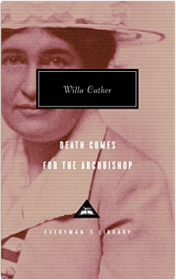 My Antonia 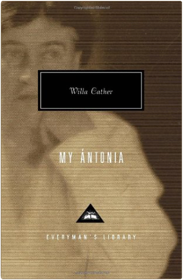 O Pioneers! 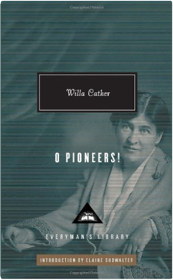 No other work of fiction so vividly evokes the harsh beauty and epic sweep of the Nebraska prairies that Cather knew and loved. The heroine of O Pioneers!, Alexandra Bergson, is a young Swedish immigrant at the turn of the twentieth century who inherits her father’s windblasted land and, through years of hard work, turns it into a prosperous farm. Fiercely independent, Alexandra sacrifices love and companionship in her passionate devotion to the land, until tragedy strikes and brings with it the chance for a new life. One of our most beloved classics, one of the great heroines of American literature. Canterbury Tales (Everyman's Library (Cloth)) 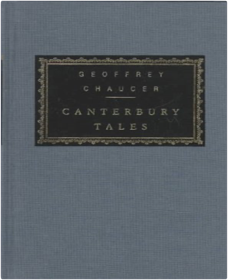 The Awakening 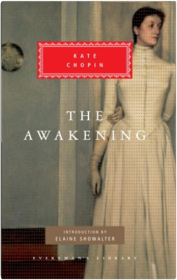 The House on Mango Street: Introduction by John Phillip Santos 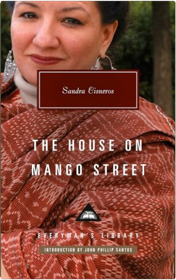 Beat Poets 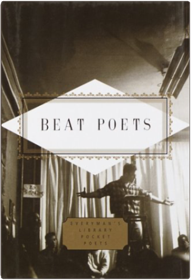 The defining work of Allen Ginsberg and Jack Kerouac provides the foundation for this collection, which also features statements on Beat poetics, selections from the alternately ardent, incendiary, and earnest correspondence of Beat Generation writers, and the improvisational verse of such Beat legends as Robert Creeley, Diane Di Prima, Gregory Corso, Denise Levertov, Lawrence Ferlinghetti, Philip Whalen, Bob Kaufman, and Peter Orlovsky, along with the work of other women writers and the lesser-known poets of this school. Visceral and powerful, infused with an unmediated spiritual and social awareness, Beat Poets is a rich and varied tribute and—in the populist spirit of the Beats—a vital addition to the libraries of readers everywhere. Coleridge: Poems (Pocket Poets Series) 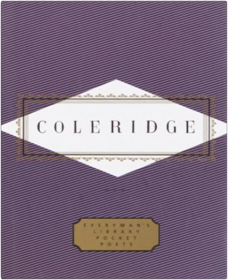 The Analects 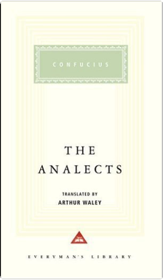 Confucius addressed all these questions in dialogues, stories, and anecdotes gathered together as The Analects, which offers not lofty moral prescriptions but sensible advice based on principles of justice and moderation. So timeless was his thinking that even now, after two and a half thousand years, The Analects remains one of the most influential texts ever written. Heart of Darkness 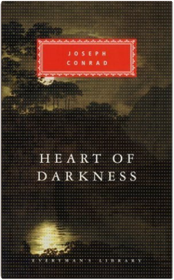 Typhoon (Everyman's Library Classics) 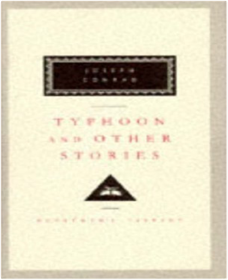 Victory 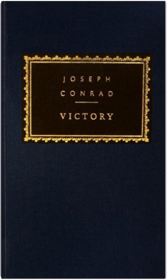 “With Victory, Conrad inaugurated a new style and aesthetic,” writes Peter Lancelot Mallios in his Introduction. “The tremendous literary sophistication to be found in Victory does not result in the exclusion of the popular reader.” The text of this Modern Library Paperback Classic was set from the first British edition, published by Methuen & Co. in 1915. From the Trade Paperback edition. The Origin of Species and the Voyage of the Beagle 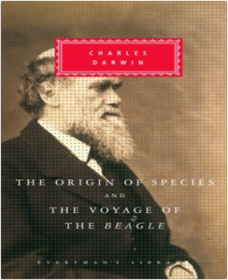 The Origin of Species is here published together with Darwin’s earlier Voyage of the ‘Beagle’. This 1839 account of the journeys to South America and the Pacific islands that first put Darwin on the track of his remarkable theories derives an added charm from his vivid description of his travels in exotic places and his eye for the piquant detail. Moll Flanders (Everyman's Library Classics) 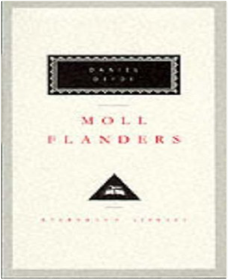 A Tale of Two Cities (Everyman's Library (Cloth)) 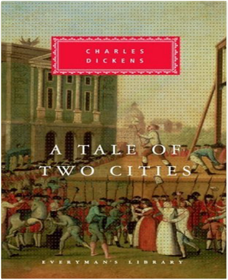 Barnaby Rudge (Everyman's Library) 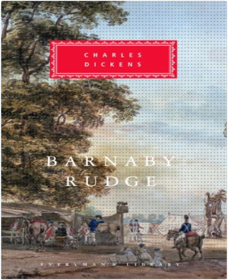 Charles Dickens’s first historical novel–set during the anti-Catholic riots of 1780–is an unparalleled portrayal of the terror of a rampaging mob, seen through the eyes of the individuals swept up in the chaos. Those individuals include Emma, a Catholic, and Edward, a Protestant, whose forbidden love weaves through the heart of the story; and the simpleminded Barnaby, one of the riot leaders, whose fate is tied to a mysterious murder and whose beloved pet raven, Grip, embodies the mystical power of innocence. The story encompasses both the rarified aristocratic world and the volatile streets and nightmarish underbelly of London, which Dickens characteristically portrays in vivid, pulsating detail. But the real focus of the book is on the riots themselves, depicted with an extraordinary energy and redolent of the dangers, the mindlessness, and the possibilities–both beneficial and brutal–of the mob. One of the lesser-known novels, Barnaby Rudge is nonetheless among the most brilliant–and most terrifying–in Dickens’s oeuvre. Bleak House (Everyman's Library (Cloth)) 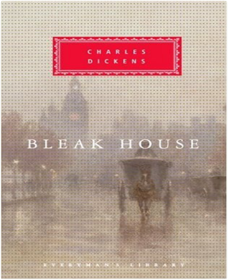 A Christmas Carol and Other Christmas Books 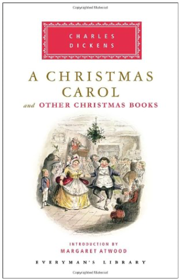 No holiday season is complete without the story of tightfisted Mr. Scrooge, of his long-suffering and mild-mannered clerk, Bob Cratchit, of Bob’s kindhearted lame son, Tiny Tim, and of the Ghosts of Christmas Past, Present, and Future. First published in 1843, A Christmas Carol was republished in 1852 in a new edition with four other Christmas stories—The Chimes, The Cricket on the Hearth, The Battle of Life, and The Haunted Man. These beloved tales revived the notion of the Christmas “spirit”—and have kept it alive ever since. David Copperfield (Everyman's Library) 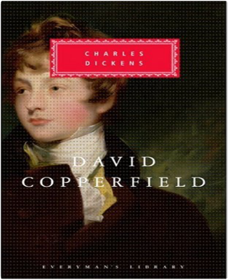 Dombey and Son 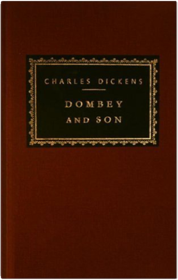 Great Expectations 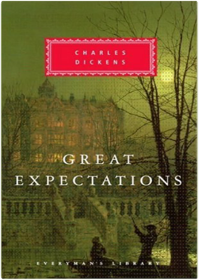 Hard Times 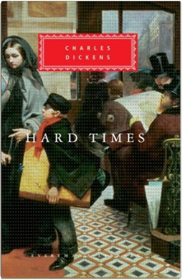 By 1854, when Hard Times was published, Charles Dickens' magisterial progress as a writer had come to incorporate a many-sided, coherent vision of English society, both as it was and as he wished it to be. Hard Times, a classic Dickensian story of redemption set in a North of England town beset by industrialism, everywhere benefits from this vision - in the trenchancy of its satire, in its sweeping indignation at social injustice, and in the persistent humanity with which its author enlivens his largest and smallest incidents. (Book Jacket Status: Jacketed) Little Dorrit 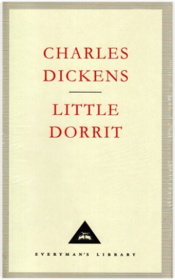 Martin Chuzzlewit 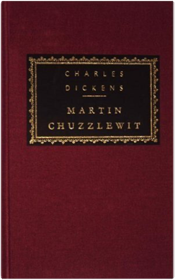 Having unjustly disinherited Iris grandson, young Martin, the old fellow now trusts no one but Mary Graham, the pretty girl hired as Iris companion. Though she has been made to understand she will not inherit a penny, she remains old Chuzzlewit's only ally. As the viperish relations and hangers-on close in on him, we meet some of Dickens's most marvelous characters — among them Mr. Pecksniff (whose name has entered the language as a synonym for ultimate hypocrisy and self-importance); the fabulously evil Jonas Chuzzlewit; the strutting reptile Tigg Montague; and the ridiculous, terrible, comical Sairey Gamp. Reluctantly heading for America in search of opportunity, the penniless young Martin goes west, rides a riverboat, and is overtaken by bad company and mortal danger — while the battle for his grandfather's gold reveals new depths of family treachery, cunning, and ruthlessness. And in scene after wonderful scene of conflict and suspense, of high excitement and fierce and hilarious satire, Dickens's huge saga of greed versus decency comes to its magnificent climax. Nicholas Nickleby 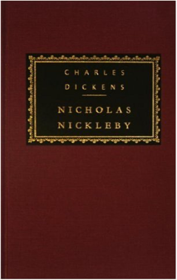 Oliver Twist (Everyman's Library) 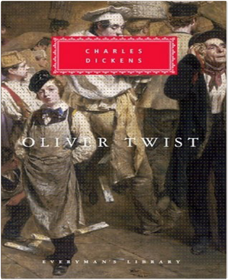 Our Mutual Friend (Everyman's Library) 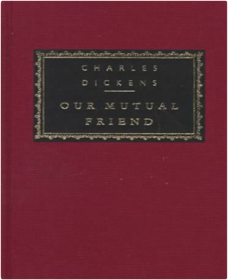 The Mystery of Edwin Drood (Everyman's Library) 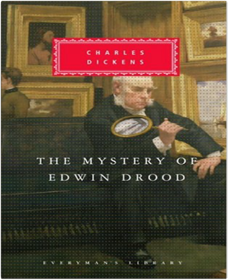 Charles Dickens’s final, unfinished novel is in many ways his most intriguing. A highly atmospheric tale of murder, The Mystery of Edwin Drood foreshadows both the detective stories of Conan Doyle and the nightmarish novels of Kafka. As in many of Dickens’s greatest novels, the gulf between appearance and reality drives the action. Set in the seemingly innocuous cathedral town of Cloisterham, the story rapidly darkens with a sense of impending evil. Central to the plot is John Jasper: in public he is a man of integrity and benevolence; in private he is an opium addict. And while seeming to smile on the engagement of his nephew, Edwin Drood, he is, in fact, consumed by jealousy, driven to terrify the boy’s fiancée and to plot the murder of Edwin himself. Though The Mystery of Edwin Drood is one of its author’s darkest books, it also bustles with a vast roster of memorable–and delightfully named–minor characters: Mrs. Billikins, the landlady; the foolish Mr. Sapsea; the domineering philanthropist, Mr. Honeythunder; and the mysterious Datchery. Several attempts have been made over the years to complete the novel and solve the mystery, but even in its unfinished state it is a gripping and haunting masterpiece. The Pickwick Papers (Everyman's Library (Cloth)) 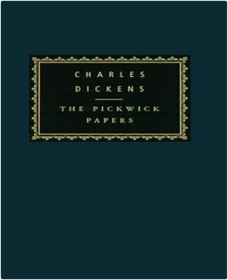 Charles Dickens’s satirical masterpiece, The Pickwick Papers, catapulted the young writer into literary fame when it was first serialized in 1836–37. It recounts the rollicking adventures of the members of the Pickwick Club as they travel about England getting into all sorts of mischief. Laugh-out-loud funny and endlessly entertaining, the book also reveals Dickens’s burgeoning interest in the parliamentary system, lawyers, the Poor Laws, and the ills of debtors’ prisons. As G. K. Chesterton noted, “Before [Dickens] wrote a single real story, he had a kind of vision . . . a map full of fantastic towns, thundering coaches, clamorous market-places, uproarious inns, strange and swaggering figures. That vision was Pickwick.” Dickinson: Poems (Everyman's Library Pocket Poets) 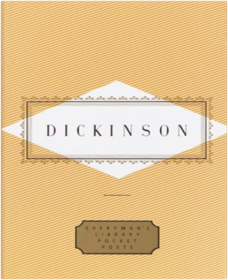 We Tell Ourselves Stories in Order to Live: Collected Nonfiction (Everyman's Library) 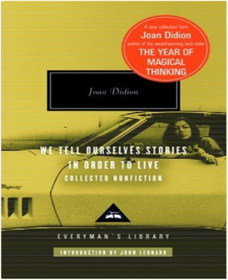 The Complete English Poems 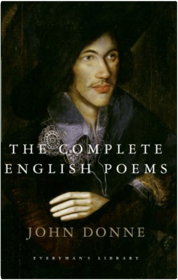 Donne: Poems (Everyman's Library Pocket Poets) 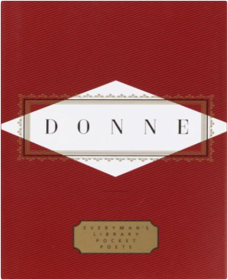 The Brothers Karamazov 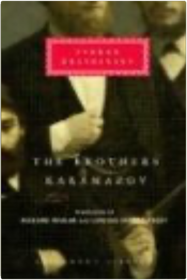 Dostoevsky’s towering reputation as one of the handful of thinkers who forged the modern sensibility has sometimes obscured the purely novelistic virtues–brilliant characterizations, flair for suspense and melodrama, instinctive theatricality–that made his work so immensely popular in nineteenth-century Russia. The Brothers Karamazov, his last and greatest novel, published just before his death in 1881, chronicles the bitter love-hate struggle between the outsized Fyodor Karamazov and his three very different sons. It is above all the story of a murder, told with hair-raising intellectual clarity and a feeling for the human condition unsurpassed in world literature. This award-winning translation by Richard Pevear and Larissa Volokhonsky–the definitive version in English–magnificently captures the rich and subtle energies of Dostoevsky’s masterpiece. Notes from a Dead House 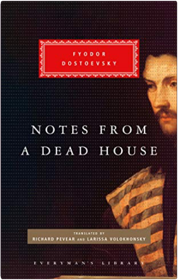 Notes from Underground (Everyman's Library (Cloth)) 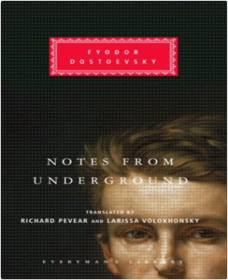 The Adolescent (Everyman's Library (Cloth)) 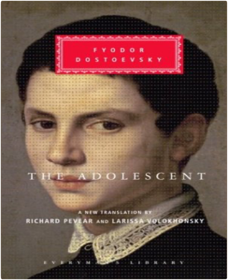 The illegitimate son of a landowner, Arkady Dolgoruky was raised by foster parents and tutors, and has scarcely ever seen his father, Versilov, and his mother, Versilov’s peasant common-law wife. Arkady goes to Petersburg to meet this “accidental family” and to confront the father who dominates his imagination and whom he both disdains and longs to impress. Having sewn into his coat a document that he believes gives him power over others, Arkady proceeds with an irrepressible youthful volatility that withstands blunders and humiliations at every turn. Dostoevsky masterfully depicts adolescence as a state of uncertainty, ignorance, and incompleteness, but also of richness and exuberance, in which everything is still possible. His tale of a youth finding his way in the disorder of Russian society in the 1870s is a high and serious comedy that borders on both farce and tragedy. The Double and The Gambler (Everyman's Library) 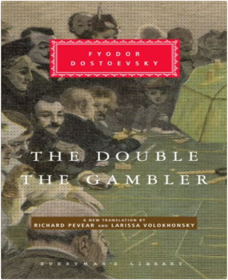 The two strikingly original short novels brought together here–in new translations by award-winning translators–were both literary gambles of a sort for Dostoevsky. The Double, written in Dostoevsky’s youth, was a sharp turn away from the realism of his first novel, Poor Folk. The first real expression of his genius, The Double is a surprisingly modern hallucinatory nightmare in which a minor official named Goliadkin becomes aware of a mysterious doppelgänger–a man who has his name and his face and who gradually and relentlessly begins to displace him with his friends and colleagues. In the dilemma of this increasingly paranoid hero, Dostoevsky makes vividly concrete the inner disintegration of consciousness that would become a major theme of his work. The Gambler was written twenty years later, under the pressure of crushing debt. It is a stunning psychological portrait of a young man’s exhilarating and destructive addiction, a compulsion that Dostoevsky–who once gambled away his young wife’s wedding ring–knew intimately from his own experience. In the disastrous love affairs and gambling adventures of his character, Alexei Ivanovich, Dostoevsky explores the irresistible temptation to look into the abyss of ultimate risk that he believed was an essential part of the Russian national character. Demons (Everyman's Library 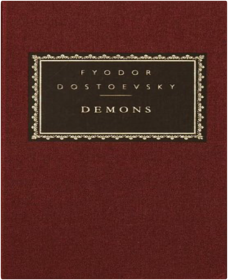 The Idiot (Everyman's Library) 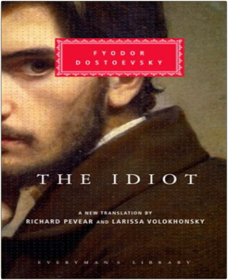 Crime and Punishment 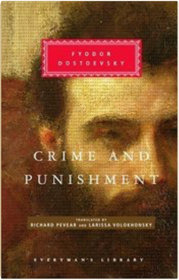 Dostoevsky’s drama of sin, guilt, and redemption transforms the sordid story of an old woman’s murder into the nineteenth century’s profoundest and most compelling philosophical novel. Raskolnikov, an impoverished student living in the St. Petersburg of the tsars, is determined to overreach his humanity and assert his untrammeled individual will. When he commits an act of murder and theft, he sets into motion a story that, for its excruciating suspense, its atmospheric vividness, and its depth of characterization and vision is almost unequaled in the literatures of the world. The best known of Dostoevsky’s masterpieces, Crime and Punishment can bear any amount of rereading without losing a drop of its power over our imaginations. Award-winning translators Richard Pevear and Larissa Volokhonsky render this elusive and wildly innovative novel with an energy, suppleness, and range of voice that do full justice to the genius of its creator. The Lover, Wartime Notebooks, Practicalities 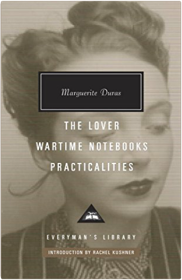 Marguerite Duras was one of the leading intellectuals and novelists of postwar France, but her wartime writings were not published in full until after her death. The Wartime Notebooks trace Duras's formative experiences—including her difficult childhood in Indochina and her harrowing wait for her husband's return from Nazi internment—revealing the personal history behind her bestselling novels. The Lover is the best known of these; set in prewar Indochina, its haunting tale of a tumultuous affair between an adolescent French girl and her wealthy Chinese lover is based on her own life. In spare and luminous prose, Duras evokes life on the margins in the waning days of France's colonial empire, and the passionate relationship between two unforgettable outcasts. Practicalities is a collection of small and intensely personal pieces Duras dictated near the end of her life. These deceptively simple meditations on motherhood, domesticity, sex, love, alcohol, writing, and more are witty, earthy, outspoken, and surprisingly fresh and relevant today. The Name of the Rose 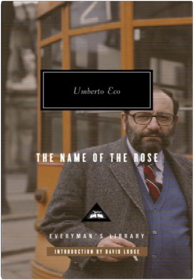 A spectacular best seller and now a classic, The Name of the Rose catapulted Umberto Eco, an Italian professor of semiotics turned novelist, to international prominence. An erudite murder mystery set in a fourteenth-century monastery, it is not only a gripping story but also a brilliant exploration of medieval philosophy, history, theology, and logic. In 1327, Brother William of Baskerville is sent to investigate a wealthy Italian abbey whose monks are suspected of heresy. When his mission is overshadowed by seven bizarre deaths patterned on the book of Revelation, Brother William turns detective, following the trail of a conspiracy that brings him face-to-face with the abbey’s labyrinthine secrets, the subversive effects of laughter, and the medieval Inquisition. Caught in a power struggle between the emperor he serves and the pope who rules the Church, Brother William comes to see that what is at stake is larger than any mere political dispute–that his investigation is being blocked by those who fear imagination, curiosity, and the power of ideas. The Name of the Rose offers the reader not only an ingeniously constructed mystery—complete with secret symbols and coded manuscripts—but also an unparalleled portrait of the medieval world on the brink of profound transformation. Adam Bede 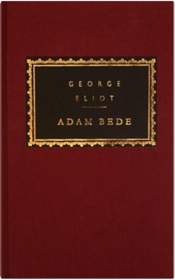 Middlemarch (Everyman's Library (Cloth)) 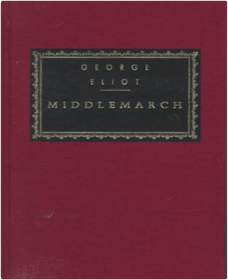 The Mill on the Floss 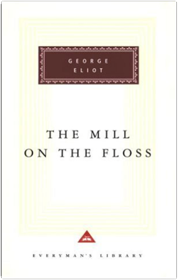 Silas Marner 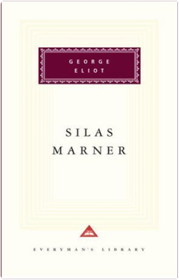 Daniel Deronda (Everyman's Library 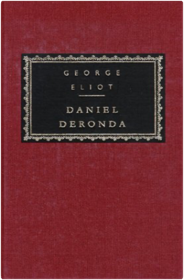 The Sound and the Fury 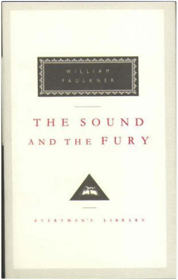 Tom Jones 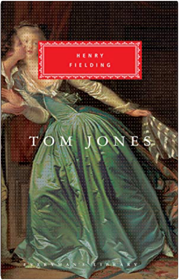 Measure for Measure: An Anthology of Poetic Meters 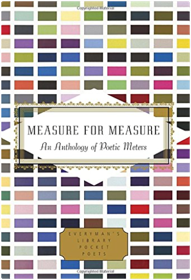 After a century dominated by free verse, there is a new excitement about rediscovering poetry's ancient musical and performative roots. Iambic pentameter is the most familiar meter for most readers, but it only scratches the surface of the extraordinary diversity of rhythmic patterns that poets have employed over the ages. That astonishing variety is fully explored in this one-of-a-kind anthology, packed with great poems that beg to be read aloud. Measure for Measure is organized by meter, with brief explanatory headnotes covering accentual meter, trochees, anapests, dactyls, iambs, ballad meter, and more exotic species like amphibrachs, dipodics, hendecasyllabics, sapphics, and more. The entrancing examples of each meter are drawn from a wide range of poetic traditions, from Ovid and Sappho to Shakespeare and Milton, encompassing the Victorians, the Romantics, ballads, folk songs, poets of the Harlem Renaissance, and modern-day hip hop. Whether performed aloud or enjoyed in solitude, Measure for Measure is a treat for the ear, the heart, and the mind. This Side of Paradise 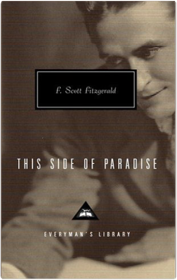 F. Scott Fitzgerald’s extraordinary career as a novelist ended abruptly and unhappily, but it began with one of the most brilliant first novels in the history of American literature. Published when its author was just twenty-three, This Side of Paradise is about the education of a youth, and to this universal story Fitzgerald brought the promise of everything that was new in the vigorous, restless America during the years following World War I. Amory Blaine–egoistic, versatile, callow, and imaginative–inhabits a book that is interwoven with songs, poems, playscripts, and questions and answers. His growth from self-absorption to sexual awareness and personhood is described by means of a continuous improvisatory energy and delight. Far from being distracting, Fitzgerald’s formal inventiveness and verve only heighten our sense that the world being described is our own modern world. A profound coherence informs This Side of Paradise–a coherence born of its author’s uncanny ability to revel in the fragmented surfaces of human life while exploring and comprehending its serene depths. Parade's End 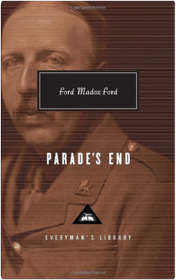 Parade's End was originally published in four parts (Some Do Not . . ., No More Parades, A Man Could Stand Up—, and Last Post) between 1924 and 1928. It explores the world of the English ruling class as it descends into the chaos of World War I, as seen through the life of Christopher Tietjens, an officer from a wealthy family who is torn between his unfaithful wife, Sylvia, and his suffragette mistress, Valentine. With scenes of sexual warfare that rival the devastation of its battlefield scenes, Parade's End is a profound dramatization of one man's internal struggles during a time of brutal world conflict. The culminating achievement of Ford's career, it fulfills his ambitious conception of the novelist's role as the historian of the present, capturing the essence of the age. The Bascombe Novels: Written and Introduced by Richard Ford 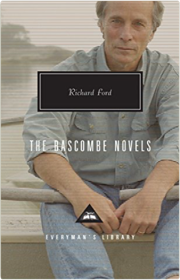 Howards End 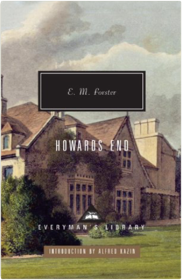 A Passage to India 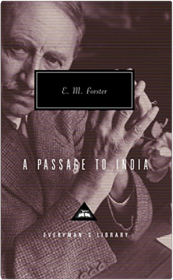 A Room with a View; Where Angels Fear to Tread 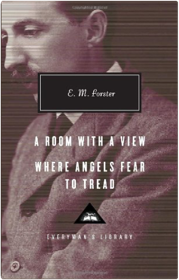 Forster’s most memorably romantic exploration of the liberating effects of Italy on the English, A Room with a View follows the carefully chaperoned Lucy Honeychurch to Florence. There she meets the unconventional George Emerson and finds herself inspired by his refreshingly free spirit— which puts her in mind of “a room with a view”—to escape the claustrophobic snobbery of her guardians back in England. The wicked tragicomedy Where Angels Fear to Tread chronicles a young English widow’s trip to Italy and its messy aftermath. When Lilia Herriton impulsively marries a penniless Italian and then dies in childbirth, her first husband’s family sets out to rescue the child from his “uncivilized” surroundings. But in ways that they can’t possibly imagine, their narrow preconceptions will be upended by the rich and varied charms of Forster’s cherished Italy. Flashman, Flash for Freedom!, Flashman in the Great Game 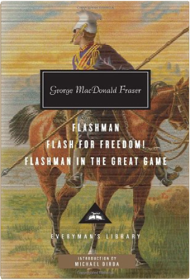 Praised by everyone from John Updike to Jane Smiley, Fraser was an acknowledged master of comedy and satire, an unrivaled storyteller, whose craft was matched only by his impeccable historical research. And his greatest creation was, of course, Flashman. The novels collected here find our hero in the midst of his usual swashbuckling adventures of derring-do: fleeing adversaries in the First Anglo-Afghan War; meeting and nearly deceiving a young Abraham Lincoln in America; alternately impersonating a native Indian cavalry recruit and wooing women in India; and managing, whatever the circumstances, to keep his hero’s reputation unsullied. A must-have treat for the legions of dedicated Flashman fans, and a delightful introduction for those lucky enough to be encountering him for the first time. Selected Works (Everyman's Library (Cloth)) 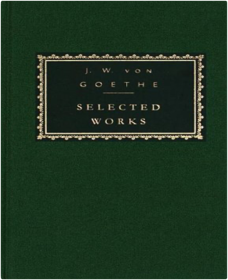 One of the towering figures of world literature, Goethe has never held quite as prominent a place in the English-speaking world as he deserves. This collection of his four major works, together with a selection of his finest letters and poems, shows that he is not only one of the very greatest European writers: he is also accessible, entertaining, and contemporary. The Sorrows of Young Werther is a story of self-destructive love that made its author a celebrity overnight at the age of twenty-five. Its exploration of the conflicts between ideas and feelings, between circumstance and desire, continues in his controversial novel probing the institution of marriage, Elective Affinities. The cosmic drama of Faust goes far beyond the realism of the novels in a poetic exploration of good and evil, while Italian Journey, written in the author’s old age, recalls his youth in Italy and the impact of Mediterranean culture on a young northerner. Translators include W. H. Auden, Louise Bogan, David Constantine, Barker Fairley, and Elizabeth Mayer The Collected Tales 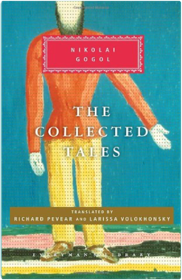 From the acclaimed translators of War and Peace, Crime and Punishment, and The Brothers Karamazov, a brilliant translation of Nikolai Gogol’s short fiction. Collected here are Gogol’s finest tales—stories that combine the wide-eyed, credulous imagination of the peasant with the sardonic social criticism of the city dweller—allowing readers to experience anew the unmistakable genius of a writer who paved the way for Dostoevsky and Kafka. All of Gogol’s most memorable creations are here: the minor official who misplaces his nose, the downtrodden clerk whose life is changed by the acquisition of a splendid new overcoat, the wily madman who becomes convinced that a dog can tell him everything he needs to know. The wholly unique blend of the mundane and the supernatural that Gogol crafted established his reputation as one of the most daring and inventive writers of his time. Dead Souls 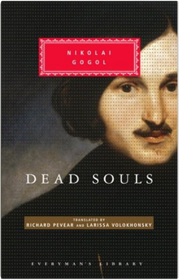 Nikolai Gogol’s Dead Souls is the great comic masterpiece of Russian literature–a satirical and splendidly exaggerated epic of life in the benighted provinces. Gogol hoped to show the world “the untold riches of the Russian soul” in this 1842 novel, which he populated with a Dickensian swarm of characters: rogues and scoundrels, landowners and serfs, conniving petty officials–all of them both utterly lifelike and alarmingly larger than life. Setting everything in motion is the wily antihero, Chichikov, the trafficker in “dead souls”–deceased serfs who still represent profit to those clever enough to trade in them. This lively, idiomatic English version by the award-winning translators Richard Pevear and Larissa Volokhonsky makes accessible the full extent of the novel’s lyricism, sulphurous humor, and delight in human oddity and error. Oblomov 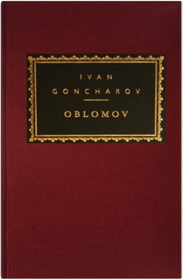 The sly, subversive side of the nineteenth-century Russian literary character — the one which represents such a contrast to the titanic exertions of Tolstoy and Dostoevsky — was most fully realized in Ivan Goncharov's 1859 masterpiece, OBLOMOV. This magnificent farce about a gentleman who spends the better part of his life in bed is a reminder of the extent to which humor, in the hands of a comic genius, can be used to explore the absurdities and injustices of a social order. Goodbye to All That 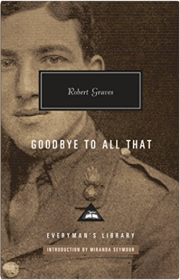 Good-bye to All That was published a decade after the end of the first World War, as the poet and novelist Robert Graves was preparing to leave England for good. The memoir documents not only his own personal experience, as a patriotic young officer, of the horrors and disillusionment of battle, but also the wider loss of innocence the Great War brought about. By the time of his writing, a way of life had ended, and England and the modern world would never be the same. In Graves's portrayal of the dehumanizing misery of the trenches, his grief over lost friends, and the surreal absurdity of government bureaucracy, Graves uses broad comedy to make the most serious points about life and death. The Human Factor (Everyman's Library) 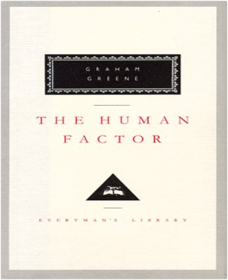 Life and Fate: Introduction by Polly Jones 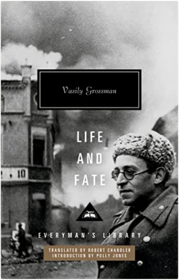 The Maltese Falcon, The Thin Man, Red Harvest 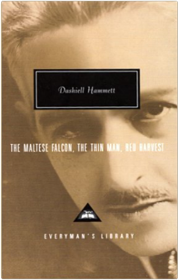 The three classic novels published here in one volume are rich with the crisp prose, subtle characters, and intricate plots that made Dashiell Hammett one of the most admired writers of the twentieth century. A one-time detective and a master of deft understatement, Hammett virtually invented the hard-boiled crime novel. In The Maltese Falcon, Sam Spade, a private eye with his own solitary code of ethics, tangles with a beautiful and treacherous woman whose loyalties shift at the drop of a dime. The Thin Man introduces Hammett's wittiest creations, Nick and Nora Charles, who solve homicides in between wisecracks and martinis. And in Red Harvest, Hammett's anonymous tough-guy detective, the Continental Op, takes on the entire town of Poisonville in a deadly war against corruption. "Dashiell Hammett is a master of the detective novel, yes, but also one hell of a writer."—Boston Globe ”Hammett was spare, hard-boiled, but he did over and over what only the best writers can ever do. He wrote scenes that seemed never to have been written before.”—Raymond Chandler ”Hammett’s prose was clean and entirely unique. His characters were as sharply and economically defined as any in American fiction.”—The New York Times ”As a novelist of realistic intrigue, Hammett was unsurpassed in his own or any time.”—Ross Macdonald ”Dashiell Hammett’s dialogues can be compared only with the best in Hemingway.”—André Gide ”Hammett is one of the best contemporary American writers.”—Gertrude Stein Tess of the D'Urbervilles 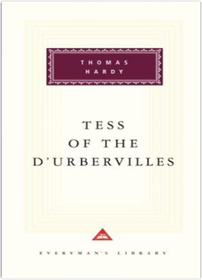 Hardy poured all of his profound empathy for both humanity and the rhythms of natural life into this story of her beauty, goodness, and tragic fate. In so doing, he created a character who, like Emma Bovary and Anna Karenina, has achieved classic stature. (Book Jacket Status: Not Jacketed) The Good Soldier Svejk 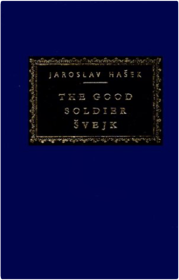 Shrewd, affable, possessed of an unerring talent for finding himself in (and extricating himself from) the most fitfully chaotic and absurd situations, Svejk represents, in his instinct for survival, all those human values which stand opposed to the utter futility of warfare. With an introduction from, and translated by, Cecil Parrott. (Book Jacket Status: Not Jacketed) The Scarlet Letter 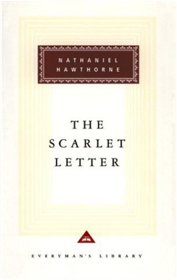 Catch-22 (Everyman's Library) 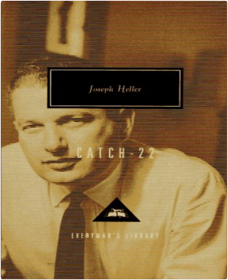 A Farewell To Arms 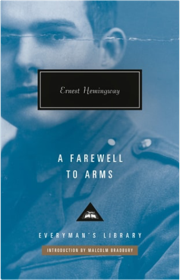 The Collected Stories 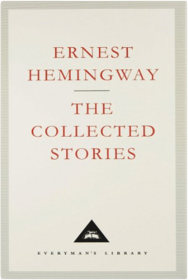 The Sun Also Rises: Introduction by Nicholas Gaskill 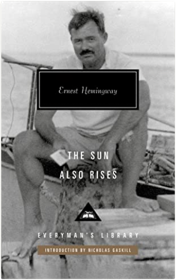 The Histories 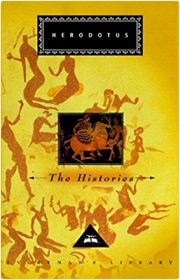 The Essential Harlem Detectives: A Rage in Harlem, The Real Cool Killers, The Crazy Kill, Cotton Comes To Harlem 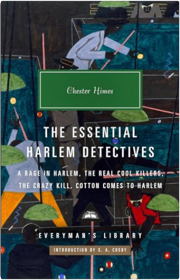 Confessions Of A Justified Sinner 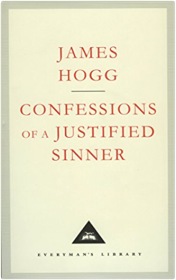 Frost: Poems (Everyman's Library Pocket Poets) 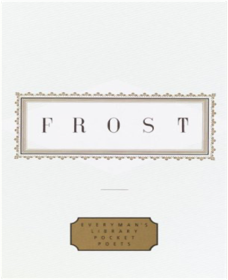 The Iliad 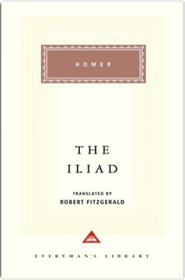 In every century since the renaissance, English speakers have felt compelled to possess a translation written especially for their own time of this great epic poem, the earliest and most central literary text of Western culture. That need has been thoroughly met in our century by the distinguished poet and classicist Robert Fitzgerald, whose version of The Iliad does justice in every way to the fluent vigor and gravity of the Homeric original. The Odyssey 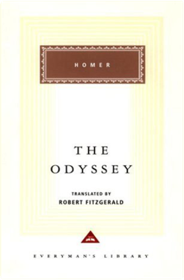 One of the supreme masterpieces of world literature, the Homeric saga of the shipwrecks, wanderings, and homecoming of the master tactician Odysseus encompasses a virtual inventory of the themes and attitudes that have shaped Western culture. The tale of Odysseus’s encounters with such obstacles as Calypso, Circe, Scylla and Charybdis, the Sirens, and the lotus-eaters, and his dramatic return to Ithaca and his patient wife, Penelope, forms a prototype for all subsequent Western epics. Robert Fitzgerald’s much-acclaimed translation, fully possessing as it does the body and spirit of the original, has helped to assure the continuing vitality of Europe’s most influential work of poetry. This edition includes twenty-five new line drawings by Barnaby Fitzgerald. Hopkins: Poems (Everyman's Library Pocket Poets) 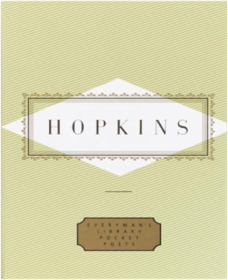 Hughes: Poems (Everyman's Library Pocket Poets) 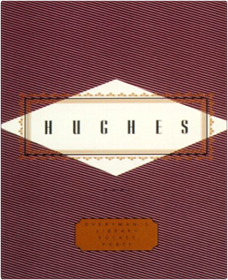 Brave New World (Everyman's Library (Cloth)) 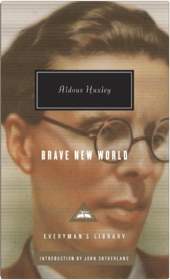 Hundreds of years in the future, the World Controllers have created an ideal civilization. Its members, shaped by genetic engineering and behavioral conditioning, are productive and content in roles they have been assigned at conception. Government-sanctioned drugs and recreational sex ensure that everyone is a happy, unquestioning consumer; messy emotions have been anesthetized and private attachments are considered obscene. Only Bernard Marx is discontented, developing an unnatural desire for solitude and a distaste for compulsory promiscuity. When he brings back a young man from one of the few remaining Savage Reservations, where the old unenlightened ways still continue, he unleashes a dramatic clash of cultures that will force him to consider whether freedom, dignity, and individuality are worth suffering for. Aldous Huxley’s ingenious fantasy of a future of mechanical efficiency and engineered harmony has been enormously influential for generations, and is as provocative, powerful, and riveting as when it was first published in 1932. (Book Jacket Status: Jacketed) Never Let Me Go: Introduction by David Sexton  The Remains of the Day (Everyman's Library (Cloth)) 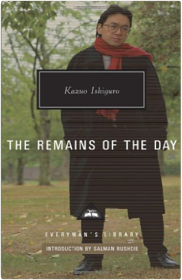 Here is Kazuo Ishiguro's profoundly compelling portrait of Stevens, the perfect butler, and of his fading, insular world in post-World War II England. Stevens, at the end of three decades of service at Darlington Hall, spending a day on a country drive, embarks as well on a journey through the past in an effort to reassure himself that he has served humanity by serving the "great gentleman," Lord Darlington. But lurking in his memory are doubts about the true nature of Lord Darlington's "greatness," and much graver doubts about the nature of his own life. The Ambassadors (Everyman's Library (Cloth)) 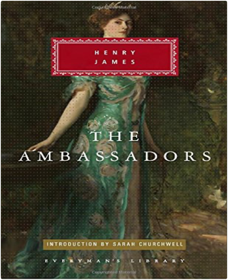 First published in 1903, the novel follows middle-aged Lambert Strether as he is dispatched from Massachusetts to Paris by his wealthy fiancée to rescue her son, Chad Newsome, from the corrupting influences of Europe and its wicked women. Once the mild-mannered and inexperienced Strether arrives in Paris, however, Chad introduces him to a world that he finds refined and sophisticated, rather than debauched and base. Mrs. Newsome, waiting in Massachusetts, grows impatient and sends more ambassadors to retrieve her wayward men. But Strether has become especially enchanted by Chad’s female friends Madame de Vionnet and her daughter, Jeanne, and he begins to wonder if, all his life, he has missed out on what the wider world has to offer. “Live all you can; it’s a mistake not to,” he tells a friend in one of the most memorable scenes in this darkly comic, masterfully written story of liberation, self-discovery, and the meaning of living well. Collected Stories Volume 1 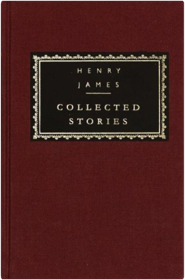 Henry James: Collected Stories Volume 2 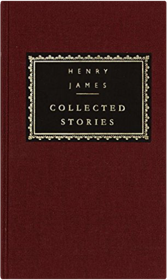 Volume 2 takes us from “The Private Life” of 1892 to James’s last story, “A Round of Visits,” published in 1910. These are the magnificent works of James’s maturity—“The Death of the Lion,” “The Altar of the Dead,” “The Figure in the Carpet,” “The Turn of the Screw,” “In the Cage,” “The Beast in the Jungle,” and many others—in which the deepening darkness of the author’s life casts a tragic but heroic shadow on the themes of his youth. Contents of Volume 2 The Private Life The Real Thing Owen Wingrave The Middle Years The Death of the Lion The Coxon Fund The Next Time The Altar of the Dead The Figure in the Carpet The Turn of the Screw In the Cage The Real Right Thing The Great Good Place Miss Gunton of Poughkeepsie The Abasement of the Northmores The Special Type The Tone of Time The Two Faces The Beldonald Holbein The Story in It Flickerbridge The Beast in the Jungle The Papers Fordham Castle Julia Bride The Jolly Corner Crapy Cornelia The Bench of Desolation A Round of Visits The Princess Casamassima (Everyman's Library Classics) 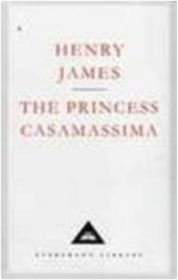 The Portrait of a Lady (Everyman's Library (Cloth)) 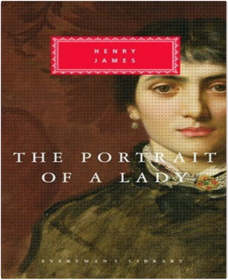 Washington Square 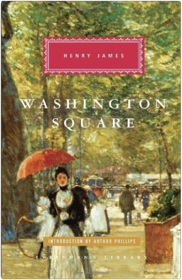 Set in the genteel New York of James’s early childhood, it is a tale of cruelty laced with comedy. Dr. Austin Sloper is a wealthy and domineering father who is disappointed in the unremarkable daughter he has produced; he dismisses her as both plain and simpleminded. The gentle and dutiful Catherine Sloper has always been in awe of her father, but when she falls in love with Morris Townsend, a penniless charmer whom Dr. Sloper accuses of being a fortune hunter, she dares to defy him and a battle of wills ensues that will leave her forever changed. Readers have long admired the way that the innocent Catherine, misled by her meddling aunt and mistreated by both her father and her lover, grows in strength and wisdom over the course of her ordeal. The Golden Bowl (Everyman's Library (Cloth)) 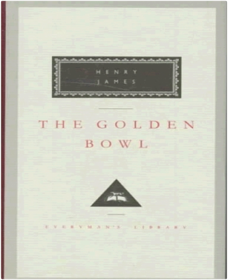 Waiting: Introduction by Rachel Khong 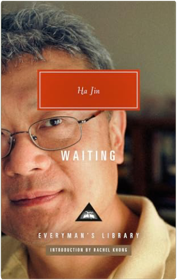 The Autobiography of an Ex-Colored Man: Introduction by Gregory Pardlo 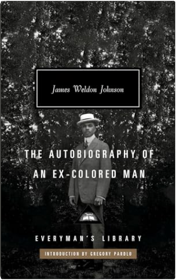 Eugene Onegin : and Other Poems (Everyman's Library Pocket Poets) 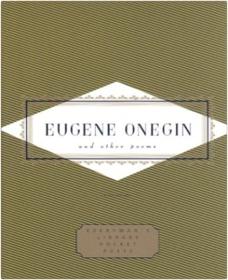 Joyce: Poems and a Play 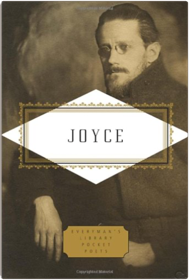 Joyce is most celebrated for his remarkable novel Ulysses, and yet he was also a highly accomplished poet. Chamber Music is his debut collection of lyrical love poems, which he intended to be set to music; in it, he enlivens the styles of the Celtic Revival with his own brand of playful irony. Pomes Penyeach, a collection written while Joyce was working on A Portrait of the Artist as a Young Man, sounds intimately autobiographical notes of passion and betrayal that would go on to resonate throughout the rest of his work. Joyce’s other poems include the moving “Ecce Puer,” written on the occasion of the birth of his grandson, and his fiery satires “The Holy Office” and “Gas from a Burner.” Exiles was written after Joyce had left Ireland, never to return; it is a richly nuanced drama that reflects a grappling with the state of his own marriage and career as he was about to embark on the writing of Ulysses. In its tale of an unconventional couple involved in a love triangle, Exiles engages Joycean themes of envy and jealousy, freedom and love, men and women, and the complicated relationship between an artist and his homeland. A Portrait of the Artist as a Young Man 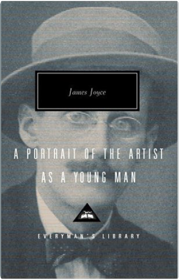 In his first and still most widely read novel, James Joyce makes a strange peace with the traditional narrative of a young man’s self-discovery by respecting its substance while exploding its form, thereby inaugurating a literary revolution. Published in 1916 when Joyce was al?ready at work on Ulysses, A Portrait of the Artist as a Young Man is exactly what its title says and much more. In an exuberantly in?ventive masterpiece of subjectivity, Joyce portrays his alter ego, Stephen Dedalus, growing up in Dublin and struggling through religious and sexual guilt toward an aesthetic awak?ening. In part a vivid picture of Joyce’s own youthful evolution into one of the twentieth century’s greatest writers, it is also a moment in the intellectual history of an age. Dubliners 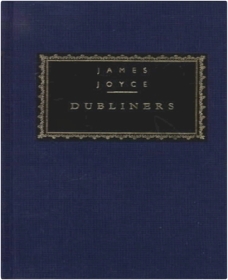 The Castle 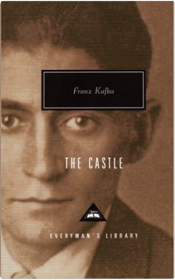 Collected Stories 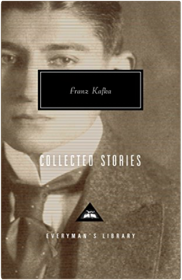 The Trial (Everyman's Library (Cloth)) 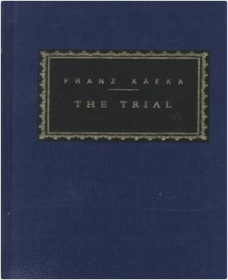 Rome Stories 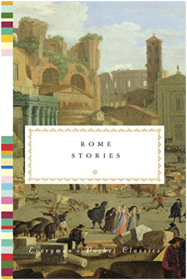 During its three-thousand-year history Rome has been an imperial metropolis, the capital of a nation, and the spiritual core of a world religion. For writers from antiquity to the present, however, it has long served as a realm of fantasy, aspiration, and desire. Captivating and lethal at one and the same moment, its beauty both transfigures and betrays those in thrall to it. Rome Stories explores the city's fateful impact through the writing of classical historians, Renaissance sculptors, Enlightenment poets and philosophers, American, British, and French novelists, and the writers of modern Italy. The Poems 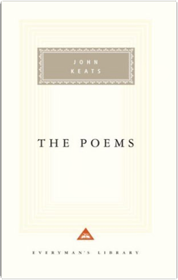 Keats: Poems (Everyman's Library Pocket Poets) 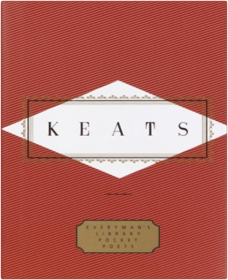 Russian Stories 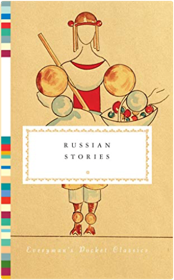 Russian Stories rounds up marvelous short stories by all the Russian heavyweights, including Pushkin, Gogol, Dostoevsky, Tolstoy, Turgenev, Chekhov, Bulgakov, and Nabokov, and continuing up to contemporary writers such as Tatyana Tolstaya and the recent Nobel Prize-winner Svetlana Alexievich. There is no similar one-volume collection of the best of the Russian greats in English, and especially none that include as many women as this one does, including a story by the recently rediscovered Teffi, who was widely hailed a century ago in Russia as "the female Chekhov." From the fate-changing storms that sweep through Alexander Pushkin's "The Blizzard" and Leo Tolstoy's "The Snow Storm" to the political whirlwind of perestroika that shapes Vladimir Sorokin's 1985 story "Start of the Season" to the aftermath of the collapse of the Soviet Union as experienced by ordinary people in Alexievich's "Landscape of Loneliness," these riveting stories chronicle not only the particular dramas and upheavals of the Russian people, but also the tribulations and triumphs of the human spirit. Collected Stories 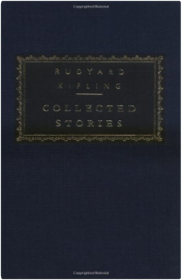 Liaisons Dangereuses 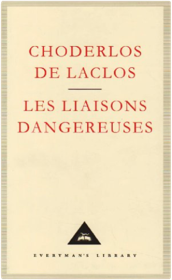 The Leopard 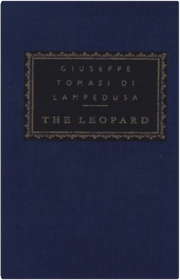 What renders The Leopard so beautiful, and so despairing, is Lampedusa's grasp of human frailty and his vision of Sicily's arid terrain—"comfortless and irrational, with no lines that the mind could grasp, conceived apparently in a delirious moment of creation; a sea suddenly petrified at the instant when a change of wind had flung waves into frenzy." Though the author had long had the book in mind, he didn't begin writing it until he was in his late 50s. He died at 60, soon after it was rejected as unpublishable. Archibald Colquhoun's lyrical translation also contains 70 more precious pages of Lampedusa—a memoir, a short story, and the first chapter of a novel. In "Places of My Infancy" the author warns that "the reader (who won't exist) must expect to be led meandering through a lost Earthly Paradise. If it bores him. I don't mind." Luckily, the reader does exist; even more luckily, boredom is not an option. The Complete Fiction of Nella Larsen: Passing, Quicksand, and the Stories 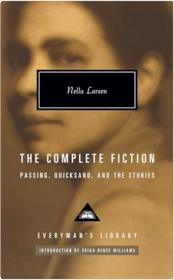 Collected Stories: D.H. Lawrence 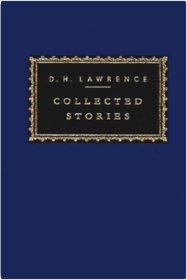 The Rainbow 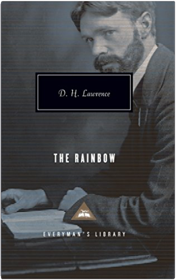 Women in Love 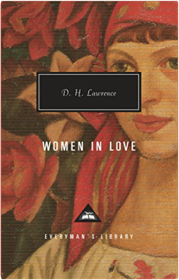 Rilke: Poems (Everyman's Library Pocket Poets) 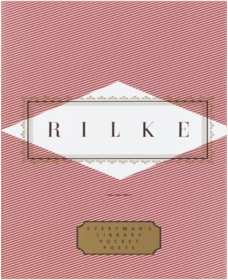 A Hero of Our Time 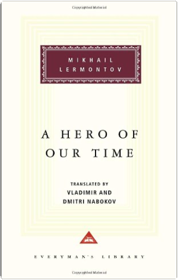 This edition includes a Translator’s Foreword by Vladimir Nabokov, who translated the novel in collaboration with his son, Dmitri Nabokov. (Book Jacket Status: Jacketed) Motherless Brooklyn; The Fortress of Solitude: Introduction by Charles Yu 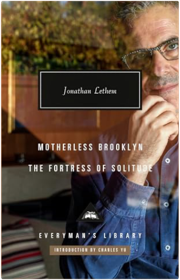 The Prince (Everyman's Library (Cloth)) 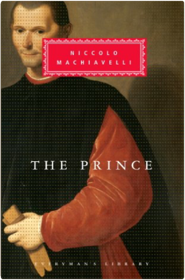 (Book Jacket Status: Jacketed) Three Novels of Ancient Egypt: Khufu's Wisdom, Rhadopis of Nubia, Thebes at War 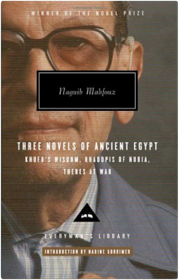 Mahfouz reaches back thousands of years to bring us tales from his homeland's majestic early history—tales of the Egyptian nobility and of war, star-crossed love, and the divine rule of the pharoahs. In Khufu's Wisdom, the legendary Fourth Dynasty monarch faces the prospect of the end of his rule and the possibility that his daughter has fallen in love with the man prophesied to be his successor. Rhadopis of Nubia is the unforgettable story of the charismatic young Pharoah Merenra II and the ravishing courtesan Rhadopis, whose love affair makes them the envy of all Egyptian society. And Thebes at War tells the epic story of Egypt's victory over the Asiatic foreigners who dominated the country for two centuries. Three Novels of Ancient Egypt gives us a dazzling tapestry of ancient Egypt and reminds us of the remarkable artistry of Naguib Mahfouz. (Book Jacket Status: Jacketed) The Cairo Trilogy : Palace Walk, Palace of Desire, Sugar Street (Everyman's Library) 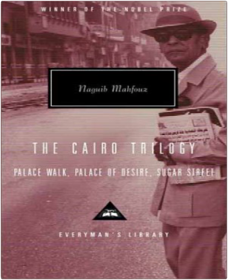 The novels of The Cairo Trilogy trace three generations of the family of tyrannical patriarch Al-Sayyid Ahmad Abd al-Jawad, who rules his household with a strict hand while living a secret life of self-indulgence. Palace Walk introduces us to his gentle, oppressed wife, Amina, his cloistered daughters, Aisha and Khadija, and his three sons–the tragic and idealistic Fahmy, the dissolute hedonist Yasin, and the soul-searching intellectual Kamal. Al-Sayyid Ahmad's rebellious children struggle to move beyond his domination in Palace of Desire, as the world around them opens to the currents of modernity and political and domestic turmoil brought by the 1920s. Sugar Street brings Mahfouz's vivid tapestry of an evolving Egypt to a dramatic climax as the aging patriarch sees one grandson become a Communist, one a Muslim fundamentalist, and one the lover of a powerful politician. Throughout the trilogy, the family's trials mirror those of their turbulent country during the years spanning the two World Wars, as change comes to a society that has resisted it for centuries. Filled with compelling drama, earthy humor, and remarkable insight, The Cairo Trilogy is the achievement of a master storyteller. Buddenbrooks: The Decline of a Family 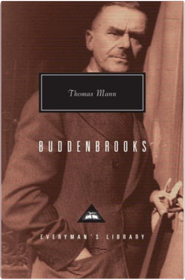 Introduction by T. J. Reed; Translation by John E. Woods Buddenbrooks, first published in Germany in 1901, when Mann was only twenty-six, has become a classic of modern literature. It is the story of four generations of a wealthy bourgeois family in northern Germany facing the advent of modernity; in an uncertain new world, the family’s bonds and traditions begin to disintegrate. As Mann charts the Buddenbrooks’ decline from prosperity to bankruptcy, from moral and psychic soundness to sickly piety, artistic decadence, and madness, he ushers the reader into a world of stunning vitality, pieced together from births and funerals, weddings and divorces, recipes, gossip, and earthy humor. In its immensity of scope, richness of detail, and fullness of humanity, buddenbrooks surpasses all other modern family chronicles. With remarkable fidelity to the original German text, this superb translation emphasizes the magnificent scale of Mann’s achievement in this riveting, tragic novel. Doctor Faustus 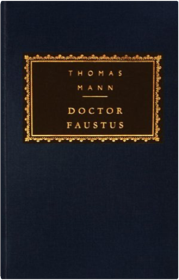 Introduction by T. J. Reed; Translation by H. T. Lowe-Porter Joseph and His Brothers: The Stories of Jacob, Young Joseph, Joseph in Egypt, Joseph the Provider 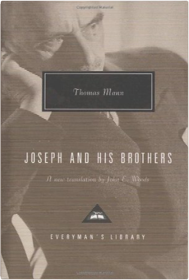 Thomas Mann regarded his monumental retelling of the biblical story of Joseph as his magnum opus. He conceived of the four parts–The Stories of Jacob, Young Joseph, Joseph in Egypt, and Joseph the Provider–as a unified narrative, a “mythological novel” of Joseph’s fall into slavery and his rise to be lord over Egypt. Deploying lavish, persuasive detail, Mann conjures for us the world of patriarchs and pharaohs, the ancient civilizations of Egypt, Mesopotamia, and Palestine, and the universal force of human love in all its beauty, desperation, absurdity, and pain. The result is a brilliant amalgam of humor, emotion, psychological insight, and epic grandeur. Now the award-winning translator John E. Woods gives us a definitive new English version of Joseph and His Brothers that is worthy of Mann’s achievement, revealing the novel’s exuberant polyphony of ancient and modern voices, a rich music that is by turns elegant, coarse, and sublime. (Book Jacket Status: Jacketed) The Magic Mountain 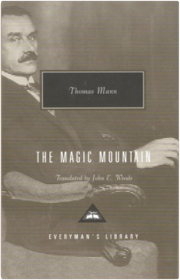 With this dizzyingly rich novel of ideas, Thomas Mann rose to the front ranks of the great modern novelists, winning the Nobel Prize in Literature in 1929. The Magic Mountain takes place in an exclusive tuberculosis sanatorium in the Swiss Alps–a community devoted to sickness that serves as a fictional microcosm for Europe in the days before the First World War. To this hermetic and otherworldly realm comes Hans Castorp, an “ordinary young man” who arrives for a short visit and ends up staying for seven years, during which he succumbs both to the lure of eros and to the intoxication of ideas. Acclaimed translator John E. Woods has given us the definitive English version of Mann’s masterpiece. A monumental work of erudition and irony, sexual tension and intellectual ferment, The Magic Mountain is an enduring classic. The Betrothed (Everyman's Library (Cloth)) 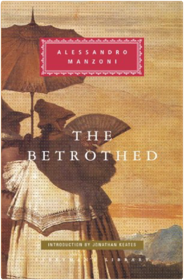 Published in 1827 but set two centuries earlier, against the tumultuous backdrop of seventeenth-century Lombardy during the Thirty Years’ War, The Betrothed is the story of two peasant lovers who want nothing more than to marry. Their region of northern Italy is under Spanish occupation, and when the vicious Spaniard Don Rodrigo blocks their union in an attempt to take Lucia for himself, the couple must struggle to persevere against his plots—which include false charges against Renzo and the kidnapping of Lucia by a robber baron called the Unnamed—while beset by the hazards of war, bread riots, and a terrifying outbreak of bubonic plague. First and foremost a love story, the novel also weaves issues of faith, justice, power, and truth into a sweeping epic in the tradition of Ivanhoe, Les Misérables, and War and Peace. Groundbreakingly populist in its day and hugely influential to succeeding generations, Alessandro Manzoni’s masterwork has long been considered one of Italy’s national treasures. Translated by Archibald Colquhoun One Hundred Years of Solitude 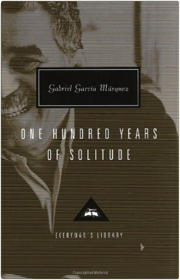 The General in His Labyrinth 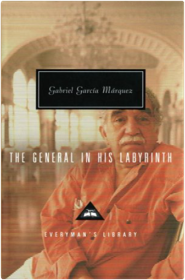 Gabriel García Márquez’s most political novel is the tragic story of General Simón Bolívar, the man who tried to unite a continent. Bolívar, known in six Latin American countries as the Liberator, is one of the most revered heroes of the western hemisphere; in García Márquez’s brilliant reimagining he is magnificently flawed as well. The novel follows Bolívar as he takes his final journey in 1830 down the Magdalena River toward the sea, revisiting the scenes of his former glory and lamenting his lost dream of an alliance of American nations. Forced from power, dogged by assassins, and prematurely aged and wasted by a fatal illness, the General is still a remarkably vital and mercurial man. He seems to remain alive by the sheer force of will that led him to so many victories in the battlefields and love affairs of his past. As he wanders in the labyrinth of his failing powers–and still-powerful memories–he defies his impending death until the last. The General in His Labyrinth is an unforgettable portrait of a visionary from one of the greatest writers of our time. Love in the Time of Cholera 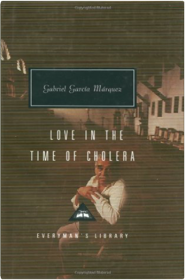 Collected Stories (Everyman's Library) 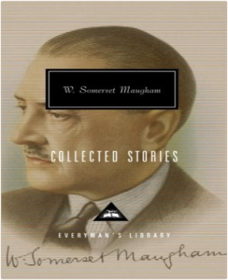 From one of the twentieth century’s most enduringly popular fiction writers: the only hardcover edition of his short stories. Though W. Somerset Maugham was also famous for his novels and plays, it has been argued that in the short story he reached the pinnacle of his art. These expertly told tales, with their addictive plot twists and vividly drawn characters, are both galvanizing as literature and wonderfully entertaining. In the adventures of his alter ego Ashenden, a writer who (like Maugham himself) turned secret agent in World War I, as well as in stories set in such far-flung locales as South Pacific islands and colonial outposts in Southeast Asia, Maugham brings his characters vividly to life, and their humanity is more convincing for the author’s merciless exposure of their flaws and failures. Whether the chasms of misunderstanding he plumbs are those between colonizers and natives, between a missionary and a prostitute, or between a poetry-writing woman and her uncomprehending husband, Maugham brilliantly displays his irony, his wit, and his genius in the art of storytelling. Of Human Bondage (Everyman's Library (Cloth)) 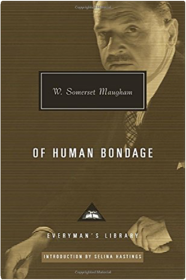 Born with a clubfoot, Philip is orphaned as a child and raised by unsympathetic relatives. Sent to a boarding school where he has difficulty fitting in, he grows up with an intense longing for love, art, and experience. After failing to become an artist in Paris, he begins medical studies in London, where he meets Mildred, a cold-hearted waitress with whom he falls into a powerful, tortured, life-altering love affair. This is the most autobiographical of Maugham’s works, with Philip’s malformed foot standing in for Maugham’s stutter, and the character’s painful romantic struggles inspired by the author’s own intense love affairs with both men and women. A brilliant and deeply moving portrayal of the price of passion and the universal desire for connection, Of Human Bondage stands as one of the most accomplished novels in English literature. The Skeptical Romancer: Selected Travel Writing 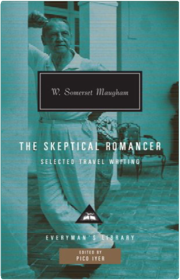 Maugham worked as a secret agent in Russia, published novels in London, staged plays in New York, and traveled throughout Europe, Asia, India, and the United States, chronicling his travels, wherever he went, with exceptional insight. Beginning with “In the Land of the Blessed Virgin” and culminating in “A Partial View,” Iyer selects vignettes of Maugham’s razor-sharp prose that track his transformation from a boyish traveler in Spain to a worldly man of letters. This is Maugham at his most keenly observant, direct, and powerful. Selected Stories of Guy de Maupassant: Introduction by Catriona Seth 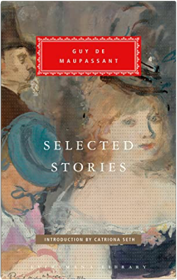 The Border Trilogy: All the Pretty Horses, the Crossing, Cities of the Plain (Everyman's Library) 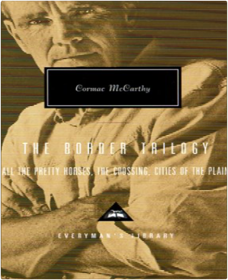 McCarthy's award-winning and bestselling Border Trilogy constitute a genuine American epic. Beginning with All the Pretty Horses and continuing through The Crossing and Cities of the Plain, McCarthy chronicles the lives of two young men coming of age in the Southwest and Mexico, poised on the edge of a world about to change forever. Hauntingly beautiful, filled with sorrow and humor, The Border Trilogy is a masterful elegy for the American frontier. The Four Seasons: Poems 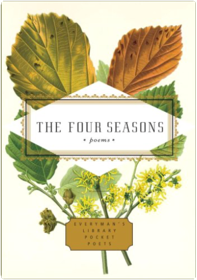 Here are poets past and present, from Chaucer, Shakespeare, and Wordsworth to Whitman, Dickinson, and Thoreau, from Keats, Blake, and Hopkins to Elizabeth Bishop, Ted Hughes, Amy Clampitt, Mary Oliver, and W. S. Merwin. Here are poems that speak of the seasons as measures of earthly time or as states of mind or as the physical expressions of the ineffable. From Robert Frost’s tribute to the evanescence of spring in “Nothing Gold Can Stay” to Langston Hughes’s moody “Summer Night” in Harlem, from the “stopped woods” in Marie Ponsot’s “End of October” to the chilling “mind of winter” in Wallace Stevens’s “The Snow Man,” the poems in this volume engage vividly with the seasons and, through them, with the ways in which we understand and engage the world outside ourselves. Atonement (Everyman's Library (Cloth)) 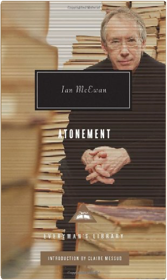 By the end of that day the lives of all three will have been changed forever. Robbie and Cecilia will have crossed a boundary they had never before dared to approach and will have become victims of the younger girl’s scheming imagination. And Briony will have committed a dreadful crime, the guilt for which will color her entire life. In each of his novels Ian McEwan has brilliantly drawn his reader into the intimate lives and situations of his characters. But never before has he worked with so large a canvas: In Atonement he takes the reader from a manor house in England in 1935 to the retreat from Dunkirk in 1941; from the London’s World War II military hospitals to a reunion of the Tallis clan in 1999. Atonement is Ian McEwan’s finest achievement. Brilliant and utterly enthralling in its depiction of childhood, love and war, England and class, the novel is at its center a profound–and profoundly moving–exploration of shame and forgiveness and the difficulty of absolution. Complete Shorter Fiction 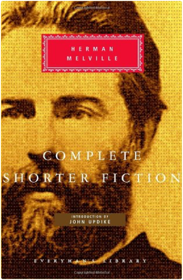 (Book Jacket Status: Jacketed) Moby-Dick 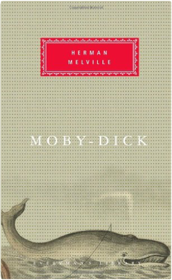 (Book Jacket Status: Jacketed) Merrill: Poems 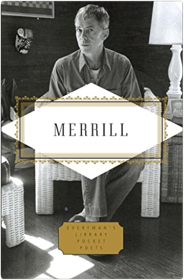 James Merrill once called his body of work "chronicles of love and loss," and in twenty books written over four decades he used the details of his own life—comic and haunting, exotic and domestic—to shape a portrait that in turn mirrored the image of our world and our moment. Like Wallace Stevens and W. H. Auden before him, Merrill sought to quicken the pulse of a poem in surprising and compelling ways—ways, indeed, that changed how we came to see our own lives. Years ago, the critic Helen Vendler wrote of Merrill, "He has become one of our indispensable poets." This volume brings together an entirely new pocket-sized selection of the best of Merrill's work. His poetry dazzles at every turn, and this balanced and compact selection will be an ideal introduction to the work for both students and general readers, and an instant favorite among his familiars. The Complete English Poems 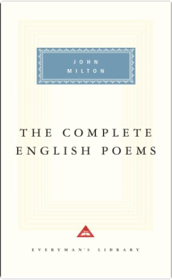 Temple of the Golden Pavilion (Everyman's Library (Cloth)) 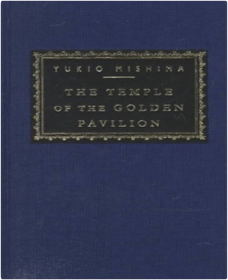 Letters (Everyman's Library) 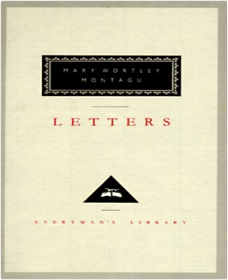 The Complete Works 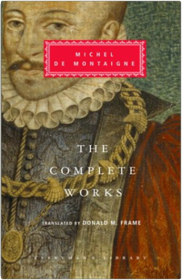 Also included in this complete edition of his works are Montaigne’s letters and his travel journal, fascinating records of the experiences and contemplations that would shape and infuse his essays. Montaigne speaks to us always in a personal voice in which his virtues of tolerance, moderation, and understanding are dazzlingly manifest. Donald M. Frame’s masterful translation is widely acknowledged to be the classic English version. (Book Jacket Status: Jacketed) Collected Stories 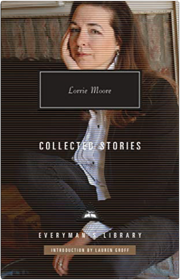 Song of Solomon 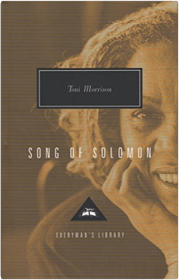 Song of Solomon begins with one of the most arresting scenes in our century's literature: a dreamlike tableau depicting a man poised on a roof, about to fly into the air, while cloth rose petals swirl above the snow-covered ground and, in the astonished crowd below, one woman sings as another enters premature labor. The child born of that labor, Macon (Milkman) Dead, will eventually come to discover, through his complicated progress to maturity, the meaning of the drama that marked his birth. Toni Morrison's novel is at once a romance of self-discovery, a retelling of the black experience in America that uncovers the inalienable poetry of that experience, and a family saga luminous in its depth, imaginative generosity, and universality. It is also a tribute to the ways in which, in the hands of a master, the ancient art of storytelling can be used to make the mysterious and invisible aspects of human life apparent, real, and firm to the touch. (Book Jacket Status: Jacketed) Carried Away: A Selection of Stories 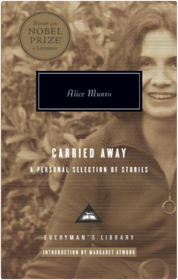 Carried Away is a dazzling selection of stories–seventeen favorites chosen by the author from across her distinguished career. With an Introduction by Margaret Atwood. Alice Munro has been repeatedly hailed as one of our greatest living writers, a reputation that has been growing for years. The stories brought together here span a quarter century, drawn from some of her earliest books, The Beggar Maid and The Moons of Jupiter, through her recent best-selling collection, Runaway. Here are such favorites as “Royal Beatings” in which a young girl, her father, and stepmother release the tension of their circumstances in a ritual of punishment and reconciliation; “Friend of My Youth” in which a woman comes to understand that her difficult mother is not so very different from herself; and “The Albanian Virgin," a romantic tale of capture and escape in Central Europe that may or may not be true but that nevertheless comforts the hearer, who is on a desperate adventure of her own. Munro’s incomparable empathy for her characters, the depth of her understanding of human nature, and the grace and surprise of her narrative add up to a richly layered and capacious fiction. Like the World War I soldier in the title story, whose letters from the front to a small-town librarian he doesn’t know change her life forever, Munro’s unassuming characters insinuate themselves in our hearts and take permanent hold. End Of The World And Hard-Boiled Wonderland 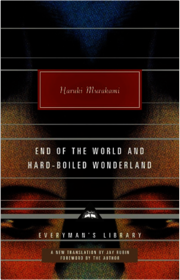 The Sea, The Sea; A Severed Head (Everyman's Library (Cloth)) 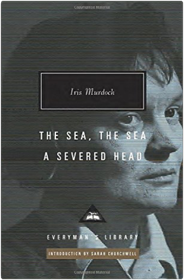 A Severed Head (1961) is one of Iris Murdoch’s most entertaining works, tracing the turbulent emotional journey of Martin Lynch-Gibbon, a smug, prosperous London wine merchant and unfaithful husband, whose life is turned inside out when his wife leaves him for her psychoanalyst. The story takes bedroom farce to a new level of sophistication, with scenes that are both wickedly funny and emblematic of the way momentous moral issues play out in everyday life. The Booker Prize–winning The Sea, the Sea (1978) is set on the edge of England’s North Sea, where egotistical Charles Arrowby, a big name in London’s glittering theatrical world, has retreated into seclusion to write his memoirs. Arrowby’s plans begin to unravel when he encounters his long-lost first love and finds himself increasingly besieged by his own fantasies, delusions, and obsessions. Both novels are tragicomic masterpieces that brilliantly dramatize how much our lives are governed by the lies we tell ourselves and by the all-consuming need for love, meaning, and redemption. Introduction by Sarah Churchwell Lolita 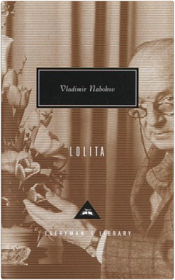 Pale Fire (Everyman's Library (Cloth)) 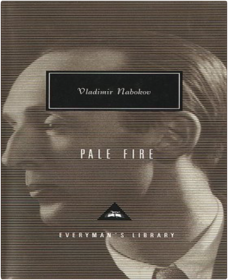 Pnin 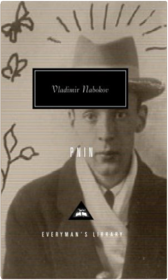 One of the best-loved of Nabokov’s novels, Pnin features his funniest and most heart-rending character. Professor Timofey Pnin is a haplessly disoriented Russian émigré precariously employed on an American college campus in the 1950s. Pnin struggles to maintain his dignity through a series of comic and sad misunder-standings, all the while falling victim both to subtle academic conspiracies and to the manipulations of a deliberately unreliable narrator. Initially an almost grotesquely comic figure, Pnin gradually grows in stature by contrast with those who laugh at him. Whether taking the wrong train to deliver a lecture in a language he has not mastered or throwing a faculty party during which he learns he is losing his job, the gently preposterous hero of this enchanting novel evokes the reader’s deepest protective instinct. Serialized in The New Yorker and published in book form in 1957, Pnin brought Nabokov both his first National Book Award nomination and hitherto unprecedented popularity. Collected Short Fiction 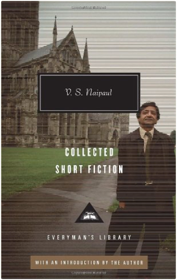 Over the course of his distinguished career, V. S. Naipaul has written a remarkable array of short fiction that moves from Trinidad to London to Africa. Here are the stories from his Somerset Maugham Award–winning Miguel Street, in which he takes us into a derelict corner of Trinidad’s capital to meet, among others, Man-Man, who goes from running for public office to staging his own crucifixion. The tales in A Flag on the Island, meanwhile, roam from a Chinese bakery in Trinidad to a rooming house in London. And in the celebrated title story from the Booker Prize– winning In a Free State, an English couple traveling in an unnamed African country discover, under a veneer of civilization, a landscape of squalor and ethnic bloodletting. No writer has rendered our postcolonial world more acutely or prophetically than V. S. Naipaul, or given its upheavals such a hauntingly human face. A House for Mr. Biswas (Everyman's Library (Cloth)) 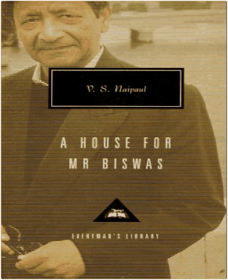 The book that turned the gentle satirist of the Caribbean into a major literary figure, this is the story of a man who, without a single asset, enters a life devoid of opportunity; his tumble-down house becomes a potent symbol of the search for identity in a postcolonial world. His most widely read novel. David Golder, The Ball, Snow in Autumn, The Courilof Affair 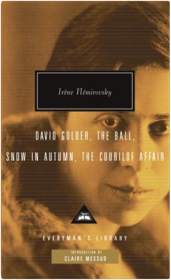 The Complete Novels 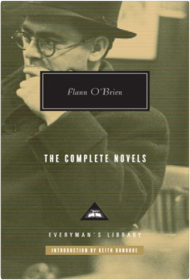 Flann O’Brien, along with Joyce and Beckett, is part of the holy trinity of modern Irish literature. His five novels–collected here in one volume–are a monument to his inspired lunacy and gleefully demented genius. O’Brien’s masterpiece, At Swim-Two-Birds, is an exuberant literary send-up and one of the funniest novels of the twentieth century. The novel’s narrator is writing a novel about another man writing a novel, in a Celtic knot of interlocking stories. The riotous cast of characters includes figures “stolen” from Gaelic legends, along with assorted students, fairies, ordinary Dubliners, and cowboys, some of whom try to break free of their author’s control and destroy him. The narrator of The Third Policeman, who has forgotten his name, is a student of philosophy who has committed murder and wanders into a surreal hell where he encounters such oddities as the ghost of his victim, three policeman who experiment with space and time, and his own soul (who is named “Joe”). The Poor Mouth, a bleakly hilarious portrait of peasants in a village dominated by pigs, potatoes, and endless rain, is a giddy parody aimed at those who would romanticize Gaelic culture. A naïve young orphan narrates the deadpan farce The Hard Life, and The Dalkey Archive is an outrageous satiric fantasy featuring a mad scientist who uses relativity to age his whiskey, a policeman who believes men can turn into bicycles, and an elderly, bar-tending James Joyce. With a new Introduction by Keith Donohue The Best of Frank O'Connor 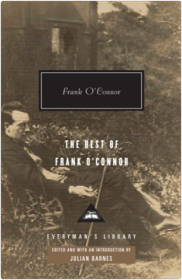 The Famished Road: Introduction by Vanessa Guignery 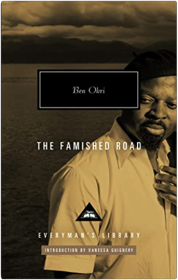 The English Patient 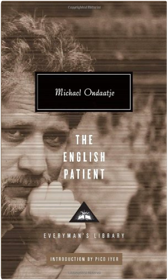 of forbidden love, and of annihilating anger—that illuminate the story, and the consequences of the mysteries they reveal radiate outward in shock waves that leave all the characters forever changed. Animal Farm 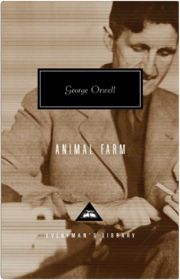 Animal Farm is the most famous by far of all twentieth-century political allegories. Its account of a group of barnyard animals who revolt against their vicious human master, only to submit to a tyranny erected by their own kind, can fairly be said to have become a universal drama. Orwell is one of the very few modern satirists comparable to Jonathan Swift in power, artistry, and moral authority; in animal farm his spare prose and the logic of his dark comedy brilliantly highlight his stark message. Taking as his starting point the betrayed promise of the Russian Revolution, Orwell lays out a vision that, in its bitter wisdom, gives us the clearest understanding we possess of the possible consequences of our social and political acts. Burmese Days, Keep the Aspidistra Flying, Coming Up for Air 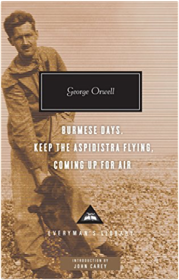 Essays 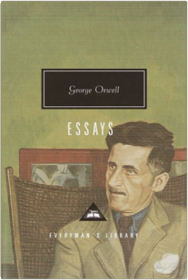 Nineteen Eighty-Four 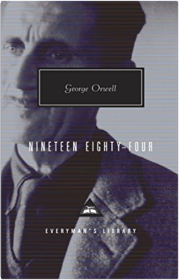 (Book Jacket Status: Jacketed) Doctor Zhivago  Plath: Poems (Everyman's Library Pocket Poets) 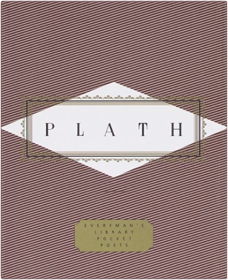 Symposium and Phaedrus 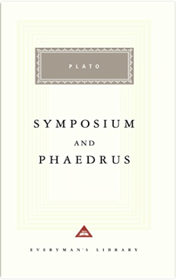 The Republic (Everyman's Library (Cloth)) 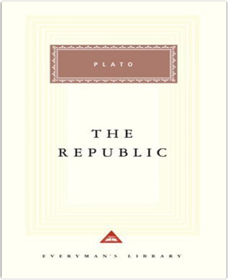 Lucky Per 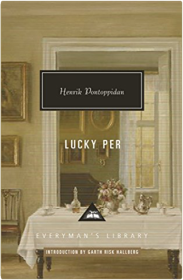 Lucky Per is a bildungsroman about the ambitious son of a clergyman who rejects his faith and flees his restricted life in the Danish countryside for the capital city. Per is a gifted young man who arrives in Copenhagen believing that "you had to hunt down luck as if it were a wild creature, a crooked-fanged beast . . . and capture and bind it." Per's love interest, a Jewish heiress, is both the strongest character in the book and one of the greatest Jewish heroines of European literature. Per becomes obsessed with a grand engineering scheme that he believes will reshape both Denmark's landscape and its minor place in the world; eventually, both his personal and his career ambitions come to grief. At its heart, the story revolves around the question of the relationship of "luck" to "happiness" (the Danish word in the title can have both meanings), a relationship Per comes to see differently by the end of his life. In Search Of Lost Time 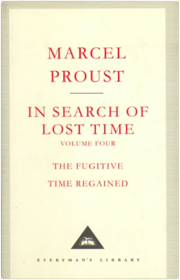 In Search Of Lost Time Volume 2 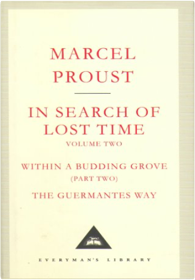 In Search Of Lost Time Volume 3 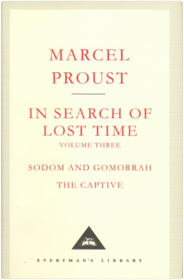 In Search Of Lost Time, Vol. 1: Swann's way - Within a Budding Grove, Part 1 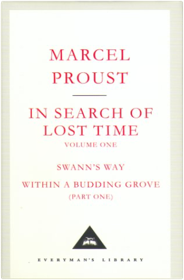 His Dark Materials: The Golden Compass / The Subtle Knife / The Amber Spyglass 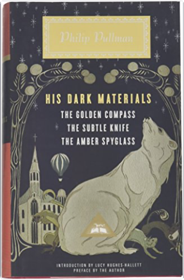 Philip Pullman's trilogy is a masterpiece that transcends genre and appeals to readers of all ages. His heroine, Lyra, is an orphan living in a parallel universe in which science, theology, and magic are entwined. The epic story that takes us through the three novels is not only a spellbinding adventure featuring armored polar bears, magical devices, witches, and daemons, it is also an audacious and profound reimagining of Milton's Paradise Lost that has already inspired a number of serious books of literary criticism. Like J. R. R. Tolkien and C. S. Lewis before him, Pullman has invented a richly detailed and marvelously imagined world, complex and thought-provoking enough to enthrall adults as well as younger readers. An utterly entrancing blend of metaphysical speculation and bravura storytelling, His Dark Materials is a monumental and enduring achievement. The Collected Stories 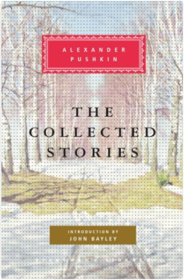 Pushkin’s prose tales are the foundation stones on which the great novels of Turgenev, Tolstoy, and Dostoevsky were built, but they are also brilliant and fascinating in their own right. In both prose and verse, Pushkin was one of the world’s great storytellers: direct and dramatic, clear-sighted, vivid, and passionate. This new and expanded Everyman’s edition of his stories includes all the mature work. In addition to such novella-length masterpieces as The Captain’s Daughter and The Tales of Belkin the collection now contains many more short pieces and the masterly History of Pugachev, a powerful account of the man who rebelled against Catherine the Great. Translated by Paul Debreczeny and Walter Arndt The King Must Die; The Bull from the Sea: Introduction by Daniel Mendelsohn 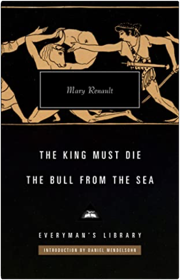 Rimbaud: Poems 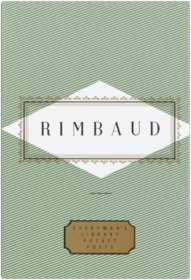 The Radetzky March 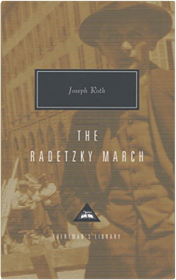 Rebellion: Introduction by Carolin Duttlinger 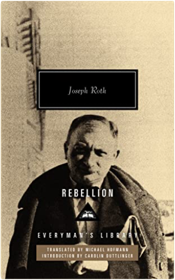 Midnight's Children (Everyman's Library (Cloth)) 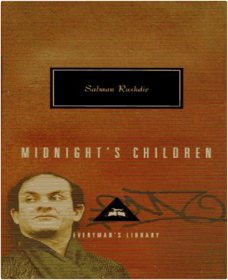 Rushdie's narrator, Saleem Sinai, is the Hindu child raised by wealthy Muslims. Near the beginning of the novel, he informs us that he is falling apart—literally: I mean quite simply that I have begun to crack all over like an old jug—that my poor body, singular, unlovely, buffeted by too much history, subjected to drainage above and drainage below, mutilated by doors, brained by spittoons, has started coming apart at the seams. In short, I am literally disintegrating, slowly for the moment, although there are signs of an acceleration. In light of this unfortunate physical degeneration, Saleem has decided to write his life story, and, incidentally, that of India's, before he crumbles into "(approximately) six hundred and thirty million particles of anonymous, and necessarily oblivious, dust." It seems that within one hour of midnight on India's independence day, 1,001 children were born. All of those children were endowed with special powers: some can travel through time, for example; one can change gender. Saleem's gift is telepathy, and it is via this power that he discovers the truth of his birth: that he is, in fact, the product of the illicit coupling of an Indian mother and an English father, and has usurped another's place. His gift also reveals the identities of all the other children and the fact that it is in his power to gather them for a "midnight parliament" to save the nation. To do so, however, would lay him open to that other child, christened Shiva, who has grown up to be a brutish killer. Saleem's dilemma plays out against the backdrop of the first years of independence: the partition of India and Pakistan, the ascendancy of "The Widow" Indira Gandhi, war, and, eventually, the imposition of martial law. We've seen this mix of magical thinking and political reality before in the works of Günter Grass and Gabriel García Márquez. What sets Rushdie apart is his mad prose pyrotechnics, the exuberant acrobatics of rhyme and alliteration, pun, wordplay, proper and "Babu" English chasing each other across the page in a dizzying, exhilarating cataract of words. Rushdie can be laugh-out-loud funny, but make no mistake—this is an angry book, and its author's outrage lends his language wings. Midnight's Children is Salman Rushdie's irate, affectionate love song to his native land—not so different from a Bombay talkie, after all. —Alix Wilber The Man Who Mistook His Wife for a Hat: And Other Clinical Tales 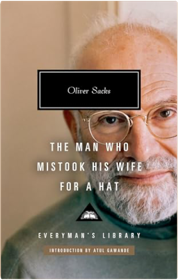 Selected Stories 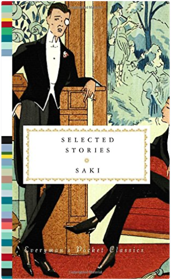 Saki's dazzling tales manage the remarkable feat of being anarchic and urbane at the same time. Studded with Wildean epigrams and featuring well-contrived plots and surprise endings, his stories gleefully skewer the pompous hypocrisies of upper class Edwardian society. But they go beyond mere satire, raising dark humor to extremes of entertaining outrageousness that have rarely since been matched. Saki's elegantly mischievous young heroes sow chaos in their wake without breaking a sweat, and are occasionally joined by werewolves, tigers, eavesdropping house pets, and casually murderous children. This selection includes such famous stories as "Tobermory," "The Open Window," "Sredni Vashtar," "Mrs. Packletide's Tiger," "The Schartz-Metterklume Method," and many more. Histories: Volume 1 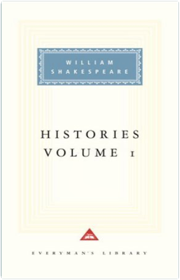 Shakespeare’s histories—containing within their crowded tableaux all of the tragedies, confusions, and beauties of human life—are not only drama of the highest order. They also serve as windows through which generations have made themselves familiar with crucial episodes in English history. For an Elizabethan England that had already emerged onto the stage of world power and was hungry to understand the sources and nature of its identity, Shakespeare provided a grandeur born of the transforming power of his art. This volume contains Henry VI, Parts 1, 2, and 3; Richard III; and King John. The texts, authoritatively edited by Sylvan Barnet, are supplemented with textual notes, bibliographies, a detailed chronology of Shakespeare’s life and times, and a substantial introduction in which Tony Tanner discusses each play individually and in the context of Shakespeare’s work. Histories: Volume 2 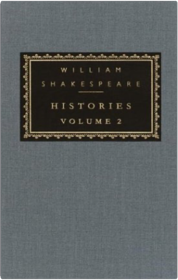 Romances (Everyman's Library) 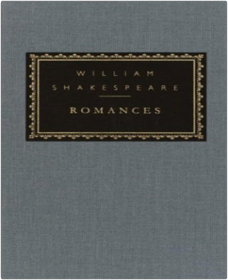 The Sonnets and Narrative Poems (Everyman's Library) 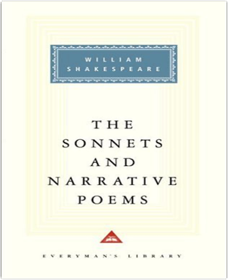 Tragedies: Volume 1 (Everyman's Library) 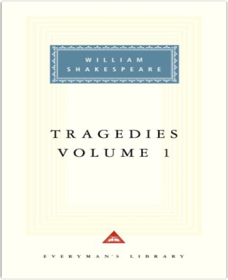 Tragedies: Volume 2 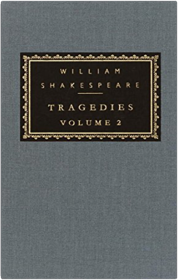 (Book Jacket Status: Not Jacketed) Comedies : Volume 1 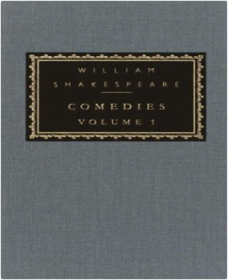 Shakespeare forged his tremendous art in the crucible of his comic imagination, which throughout his life enveloped and contained his tragic one. His early comedies—with their baroque poetic exuberance, intense theatricality, explosive bursts of humor, and superbly concrete realizations of the dialects of love—capture as in a chrysalis all that he was to become. They provide a complete inventory of the mind of our greatest writer in the middle of his golden youth. This volume contains The Comedy of Errors, The Taming of the Shrew, The Two Gentlemen of Verona, Love's Labor's Lost, A Midsummer Night's Dream, and it's companion piece, Romeo and Juliet, which Tony Tanner describes in his introduction as "a tragedy by less than one minute." The texts, authoritatively edited by Sylvan Barnet, are supplemented with textual notes, bibliographies, a detailed chronology of Shakespeare's life and times, and a substantial introduction in which Tanner discusses each play individually and in the context of Shakespeare's oeuvre. Comedies, Vol. 2 (Everyman's Library) 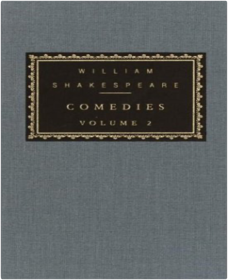 Shakespeare’s later comedies were written at the astonishing pace of about two plays a year. In them, he moves beyond the farce of his earlier comedies to richer and more varied dramas. These range from the famous “problem plays,” which blend humor with tragedy, to the idyllic romances set in such timeless locales as the Forest of Arden. They contain some of his wittiest and most memorable characters, from cross-dressing heroines, bantering lovers, and wisecracking fools to the villainous but sympathetic Shylock and the boisterous and bawdy Falstaff. This volume contains The Merchant of Venice, The Merry Wives of Windsor, Much Ado About Nothing, As You Like It, Twelfth Night, All’s Well That Ends Well, and Measure for Measure. The authoritatively edited text of the plays is supplemented with footnotes, bibliographies, a detailed chronology of Shakespeare’s life and times, and a substantial introduction in which Tony Tanner discusses each play individually and in the context of Shakespeare’s work. Shakespeare: Poems (Everyman's Library Pocket Poets) 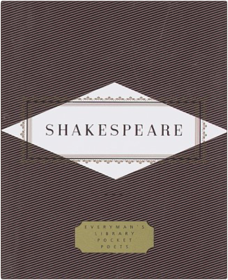 A Thousand Acres 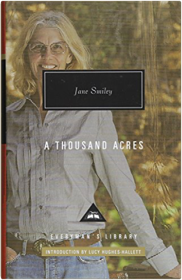 This powerful twentieth-century reimagining of Shakespeare's King Lear centers on a wealthy Iowa farmer who decides to divide his farm among his three daughters. When the youngest objects, she is cut out of his will, which sets in motion a chain of events that brings dark truths to light. Ambitiously conceived and stunningly written, A Thousand Acres spins the most fundamental themes of truth, justice, love, and pride into a universally acclaimed masterpiece. The Prime of Miss Jean Brodie, The Girls of Slender Means, The Driver's Seat, The Only Problem 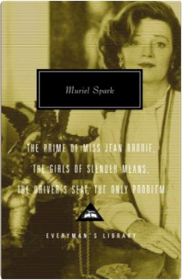 The brevity of Muriel Spark’s novels is equaled only by their brilliance. These four novels, each a miniature masterpiece, illustrate her development over four decades. Despite the seriousness of their themes, all four are fantastic comedies of manners, bristling with wit. Spark’s most celebrated novel, The Prime of Miss Jean Brodie, tells the story of a charismatic schoolteacher’s catastrophic effect on her pupils. The Girls of Slender Means is a beautifully drawn portrait of young women living in a hostel in London in the giddy postwar days of 1945. The Driver’s Seat follows the final haunted hours of a woman descending into madness. And The Only Problem is a witty fable about suffering that brings the Book of Job to bear on contemporary terrorism. All four novels give evidence of one of the most original and unmistakable voices in contemporary fiction. Characters are vividly etched in a few words; earth-shaking events are lightly touched on. Yet underneath the glittering surface there is an obsessive probing of metaphysical questions: the meaning of good and evil, the need for salvation, the search for significance. The Charterhouse of Parma 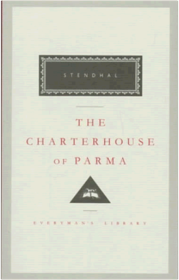 Balzac considered it the most important French novel of his time. André Gide later deemed it the greatest of all French novels, and Henry James judged it to be a masterpiece. Now, in a major literary event, Pulitzer Prize-winning poet and distinguished translator Richard Howard presents a new rendition of Stendhal's epic tale of romance, adventure, and court intrigue set in early nineteenth-century Italy. The Charterhouse of Parma chronicles the exploits of Fabrizio del Dongo, an ardent young aristocrat who joins Napoleon's army just before the Battle of Waterloo. Yet perhaps the novel's most unforgettable characters are the hero's beautiful aunt, the alluring Duchess of Sanseverina, and her lover, Count Mosca, who plot to further Fabrizio's political career at the treacherous court of Parma in a sweeping story that illuminates an entire epoch of European history. "Stendhal has written The Prince up to date, the novel that Machiavelli would write if he were living banished from Italy in the nineteenth century," noted Balzac in his famous review of The Charterhouse of Parma. "Never before have the hearts of princes, ministers, courtiers, and women been depicted like this. . . . One sees perfection in every detail. . . . [It] has the magnitude of a canvas fifty feet by thirty, and at the same time the manner, the execution, is Dutch in its minuteness. . . . The Charterhouse of Parma often contains a whole book in a single page. . . . It is a masterpiece." This edition includes original illustrations by Robert Andrew Parker and Notes and a Translator's Afterword by Richard Howard. Scarlet and Black 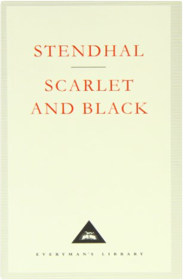 Zeno's Conscience 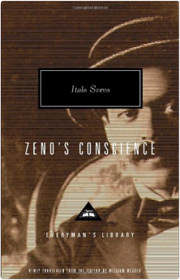 Italo Svevo’s masterpiece tells the story of a hapless, doubting, guilt-ridden man paralyzed by fits of ecstasy and despair and tickled by his own cleverness. His doctor advises him, as a form of therapy, to write his memoirs; in doing so, Zeno reconstructs and ultimately reshapes the events of his life into a palatable reality for himself–a reality, however, founded on compromise, delusion, and rationalization. With cigarette in hand, Zeno sets out in search of health and happiness, hoping along the way to free himself from countless vices, not least of which is his accursed “last cigarette!” (Zeno’s famously ineffectual refrain is inevitably followed by a lapse in resolve.) His amorous wanderings win him the shrill affections of an aspiring coloratura, and his confidence in his financial savoir-faire involves him in a hopeless speculative enterprise. Meanwhile, his trusting wife reliably awaits his return at appointed mealtimes. Zeno’s adventures rise to antic heights in this pioneering psychoanalytic novel, as his restlessly self-preserving commentary inventively embroiders the truth. Absorbing and devilishly entertaining, Zeno’s Conscience is at once a comedy of errors, a sly testimonial to the joys of procrastination, and a surpassingly lucid vision of human nature by one of the most important Italian literary figures of the twentieth century. (Book Jacket Status: Jacketed) Waterland (Everyman's Library (Cloth)) 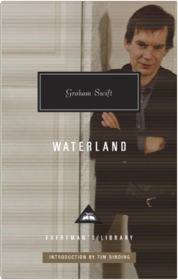 In the flat, watery Fen Country of East Anglia, a passionate history teacher named Tom Crick is being forced into early retirement from the school where he has taught for thirty years. When a student rebelliously questions the value of the subject to which Tom has devoted his life, Tom responds with his own personal retrospective. His story—intertwined with the stories of the local wetlands, the French Revolution, and World War II, among other things—throws light onto the dark circumstances of the current day, revealing how his wife’s tragic youth led to the events surrounding his forced retirement. A monumental tribute to the past, a gripping multigenerational family saga, and a powerful affirmation of the history of self, this exceptional novel illuminates the cycles of time in which we live. Book Jacket Status: Jacketed Introduction by Tim Bunding Gulliver's Travels 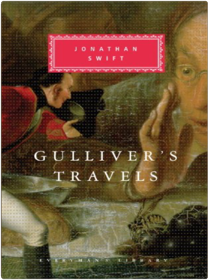 An immediate success on its publication in 1726, GULLIVER'S TRAVELS was read, as John Gay put it, "from the cabinet council to the nursery." Dean Swift's great satire is presented here in its unexpurgated entirety. The Best of Tagore: Edited and Introduced by Rudrangshu Mukherjee 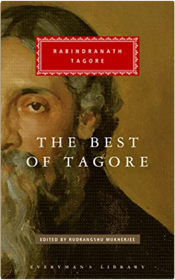 Bedtime Stories 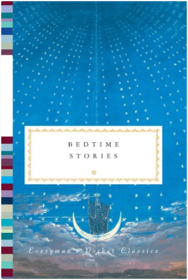 In Bedtime Stories, great writers of the past two centuries explore the boundaries between the real and the unreal, between waking and dreaming. From the surreal night visions of Nathaniel Hawthorne’s “Young Goodman Brown” to the unspeakable horror that haunts two little girls in A. S. Byatt’s “The Thing in the Forest,” from Washington Irving’s comical “The Legend of Sleepy Hollow” to Ursula K. LeGuin’s sly perspective on Sleeping Beauty in “The Poacher,” these spellbinding stories transform the stuff of fables and fairy tales into high art. Isak Dinesen, Vladimir Nabokov, Angela Carter, Julio Cortázar, Steven Millhauser, Neil Gaiman, Haruki Murakami, and many more mingle their voices in this one-volume gateway to dreams—the perfect bedside companion for fiction lovers everywhere. Christmas Stories 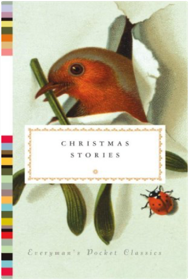 Now joining Everyman’s Library—the most extensive and distinguished collectible library of the world’s greatest works—is an appealing new collection in a small Pocket Classics format, perfect for gift giving and reading pleasure. Christmas Stories is a treasury of short fiction by great writers of the past two centuries—from Dickens and Tolstoy to John Updike and Alice Munro. As a literary subject, Christmas has inspired everything from intimate domestic dramas to fanciful flights of the imagination, and the full range of its expression is represented in this wonderfully engaging anthology. Goblins frolic in the graveyard of an early Dickens tale and a love-struck ghost disrupts a country estate in Elizabeth Bowen’s “Green Holly.” The plight of the less fortunate haunts Chekhov’s “Vanka” and Willa Cather’s “The Burglar’s Christmas” but takes a boisterously comic turn in Damon Runyon’s “Dancing Dan’s Christmas” and in John Cheever’s “Christmas Is a Sad Season for the Poor.” From Vladimir Nabokov’s intensely moving story of a father’s grief in “Christmas” to Truman Capote’s hilarious yet heartbreaking “A Christmas Memory,” from Grace Paley’s Jewish girl starring in the Christmas pageant in “The Loudest Voice” to the dysfunctional family ski holiday in Richard Ford’s “Crèche”—each of the stories gathered here is imbued with Christmas spirit (of one kind or another), and all are richly and indelibly entertaining. Love Stories 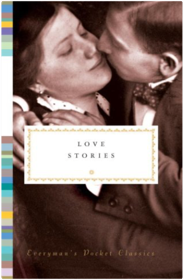 Here are nineteen stories from a rich array of writers, and here is every kind of romantic entanglement: from the raw, erotic passion of D. H. Lawrence and Colette to the wickedly cynical comedy of Dorothy Parker and Roald Dahl, from the yearnings of unrequited romantic illusions in F. Scott Fitzgerald’s “Winter Dreams” to the agonizing madness of jealousy in Vladimir Nabokov’s “That in Aleppo Once . . .” The objects of passion in these stories range from a glamorous silent-movie starlet in Elizabeth Bowen’s haunting “Dead Mabelle” to an emotionally opaque heart surgeon in Margaret Atwood’s “Bluebeard’s Egg.” Jhumpa Lahiri plumbs the depths of despair between a husband and wife separated by tragedy, while Lorrie Moore movingly portrays a husband and wife for whom tragedy becomes a bond. Katherine Mansfield, Tobias Wolff, and William Trevor explore the intricacies of long-term relationships, while Guy de Maupassant, Italo Calvino, and T. C. Boyle portray the initial, elemental force of love. A collection as alluring, moving, and intoxicating as its timeless theme. New York Stories 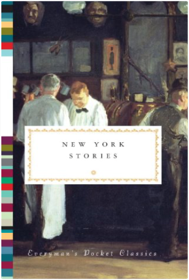 Writers have always been enthralled and inspired by New York City, and their vibrant and varied stories provide a kaleidoscopic vision of the city’s high life, low life, nightlife, and everything in between. From the wisecracking Broadway guys and dolls of Damon Runyon to the glittering ballrooms of Edith Wharton, from the jazz- soaked nightspots of Jack Kerouac and James Baldwin to the starry- eyed tourists in John Cheever and Shirley Jackson to the ambitious immigrants conjured by Edwidge Danticat and Junot Diaz— this is New York in all its grittiness and glamour. Here is the hectic, dazzling chaos of Times Square and the elegant calm of galleries in the Met; we meet Yiddish matchmakers in the Bronx, Haitian nannies in Central Park, starving artists, and hedonistic yuppies—a host of vivid characters nursing their dreams in the tiny apartments, the lonely cafés, and the bustling streets of the city that never sleeps. Shaken and Stirred: Intoxicating Stories 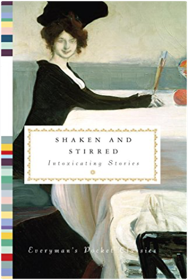 In this lively collection, wine snobs receive their comeuppances at the hands of Roald Dahl and Edgar Allan Poe; innocents overimbibe in tales by Jack London and Alice Munro; riotous partying exacts a comic price in stories by P. G. Wodehouse and Kingsley Amis; Charles Jackson and Jean Rhys chronicle liquor-soaked epiphanies; while John Cheever, Vladimir Nabokov, and Robert Coover set their characters afloat on surreal, soul-revealing adventures. Here, too, are well-lubricated tales by Dickens, Twain, Beckett, Colette, Dorothy Parker, F. Scott Fitzgerald, Dawn Powell, Clarice Lispector, Joy Williams, Penelope Lively, and many more. The settings include hotels and restaurants, a wine cellar in Italy, a café in Paris, a bar in Dublin, a New York nightclub, Jazz Age speakeasies, suburban lawn parties, and the occasional jail cell, and are peopled by lovers and loners, bartenders and chorus girls, youths taking their first sips and experienced tipplers waking with hangovers. Whether living it up or drowning their sorrows, the vividly drawn characters in these sparkling pages will leave you shaken and stirred. Stories of Art and Artists 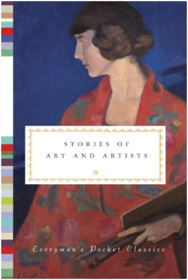 Writers have long been fascinated by the idea of artistic genius, the relationship between portraits and their subjects, the inspirational role of muses, and the effects on artists of ambition, failure, and success. Art forms featured in these pages include sculpture, pottery, architecture, miniatures, landscapes, portraits, and abstract painting, illumined in brilliant stories by such great writers as Honoré de Balzac, Hermann Hesse, Franz Kafka, Marguerite Yourcenar, John Berger, William Boyd, Doris Lessing, Valerie Martin, Julian Barnes, Orhan Pamuk, and A. S. Byatt. Their dazzling literary evocations of the visual arts—using one art form to reflect on another—make Stories of Art and Artists an irresistible gift for lovers of art of all kinds. (Book Jacket Status: Jacketed) Walden 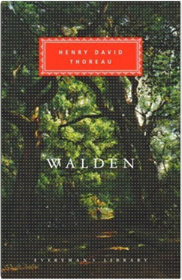 (Book Jacket Status: Jacketed) Anna Karenina: Introduction by John Bayley  Childhood, Boyhood, and Youth 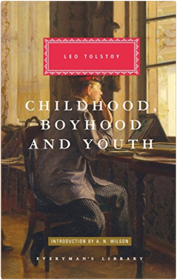 War and Peace 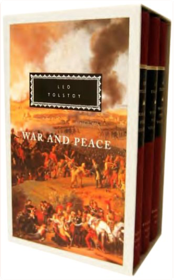 As Napoleon's army invades, Tolstoy brilliantly follows characters from diverse backgrounds—peasants and nobility, civilians and soldiers—as they struggle with the problems unique to their era, their history, and their culture. And as the novel progresses, these characters transcend their specificity, becoming some of the most moving—and human—figures in world literature. Translated by Louise and Aylmer Maude. (Book Jacket Status: Not Jacketed) Three-Volume Boxed Set Collected Shorter Fiction - Volume 1 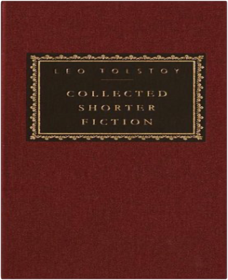 Collected Shorter Fiction - Volume 2 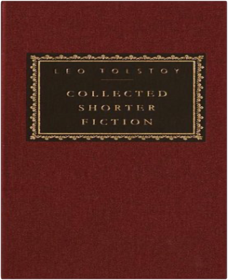 Barchester Towers 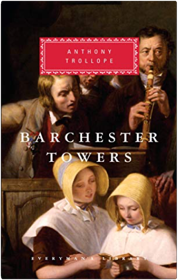 Can You Forgive Her? 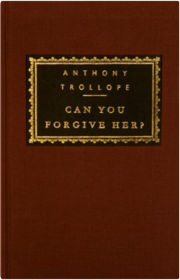 The Duke's Children: The Only Complete Edition (Everyman's Library (Cloth)) 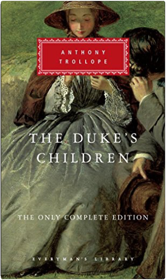 Trollope wrote The Duke’s Children, his final Palliser novel, as a four-volume work but was required by his publisher to reduce it to three, necessitating the loss of nearly sixty-five thousand words. A team of researchers led by Steven Amarnick has worked with the manuscript at Yale’s Beinecke Library to restore the novel to its original form. The result is richer and more complex, with a subtly different ending, a clearly superior book to the one that has always been published. Plantagenet Palliser, the Duke of Omnium, has lost both his vivacious wife, Lady Glencora, and his position as prime minister of Great Britain. The bereft duke is left to try to manage his three grown children, whose rebellions take the various forms of gambling debts, university pranks, and unsuitable romantic attachments. But though he fails to understand his offspring, Palliser truly cares for them, and he navigates the clash of generations with a growing awareness of the necessity of compromises, both political and personal. Insightful, entertaining, and compassionate—and now restored to its full glory—The Duke’s Children is a fitting conclusion to the epic Palliser series, one of the most remarkable achievements of British fiction. The Eustace Diamonds 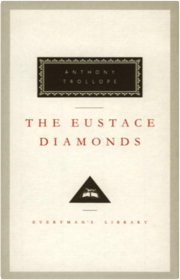 Fathers and Children 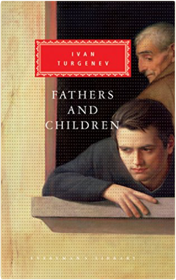 A Sportsman's Notebook 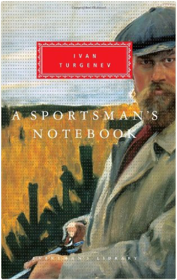 These beautifully embellished, evocative stories were not only universally popular with the reading public but, through the influence they exerted on important members of the Tsarist bureaucracy, contributed to the major political event of mid–nineteenth–century Russia, the Great Emancipation of the serfs in 1861. Rarely has a book that offers such undiluted literary pleasure also been so strong a force for significant social change. With an introduction by Ivan Turgenev, this version was translated by Charles and Natasha Hepburn. (Book Jacket Status: Jacketed) Collected Nonfiction, Volume 1: Selections from the Autobiography, Letters, Essays, and Speeches (Everyman's Library (Cloth)) 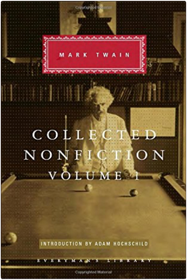 Whether crossing the Atlantic and Pacific Oceans or blazing through Europe and the Americas, Twain turned his trademark wit, candor, and acerbic sarcasm on all his experiences. We can trace his personal evolution through his ambition-filled missives home to Missouri after moving out west to be a fledgling reporter, his raucous stories of navigating a steamboat down the Mississippi, his romantic-turned-elegiac sentiments for his wife, Livy, and, later in life, his darker reflections on the ills of society. Often too outrageous not to be true, Twain’s real-life adventures added to his enduring legend, while his clear-eyed view of humanity has provided an unmatched blend of entertainment and moral integrity for generations of readers. Collected Nonfiction, Volume 2: Selections from the Memoirs and Travel Writings (Everyman's Library (Cloth)) 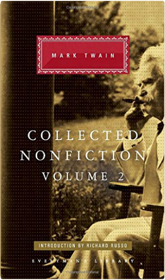 Twain’s playful exuberance and remarkable storytelling gifts are on full display as he regales readers with real-life adventures in these rollicking, shrewd, and hilarious autobiographical works. In these pages, we follow him through his stint as a fledgling reporter out west to his attempt to navigate a steamboat on the Mississippi River, and all during his experiences as an irreverent and skeptical traveler through Europe and the Holy Land. Gleefully iconoclastic, whether he is puncturing the pretensions of others or aiming his satirical barbs squarely at himself, Twain also proves to be deeply compassionate, as fierce in his condemnation of injustice as he is skillful in mining the humor in human folly. Long hailed as “the Lincoln of our literature,” Twain here demonstrates the rich and fertile a blend of contradictions he harborded as much as the dynamic nation he came to embody—and define. The Complete Short Stories 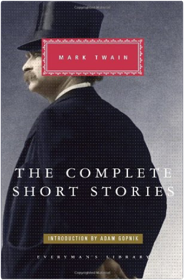 Mark Twain’s famous novels Tom Sawyer and Huckleberry Finn have long been hailed as major achievements, but the father of American literature also made his mark as a master of the humorous short story. All the tales he wrote over the course of his lengthy career are gathered here, including such immortal classics as “The Notorious Jumping Frog of Calaveras County,” “The Man That Corrupted Hadleyburg," “The Diary of Adam and Eve,” and “The $30,000 Bequest.” Twain’s inimitable wit, his nimble plotting, and his unerring insight into human nature are on full display in these wonderfully entertaining stories. Tom Sawyer and Huckleberry Finn (Everyman's Library) 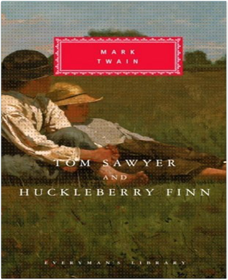 Reunion: Introduction by Ali Smith 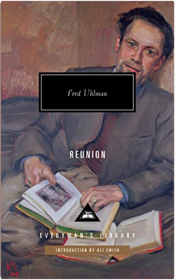 The Maples Stories 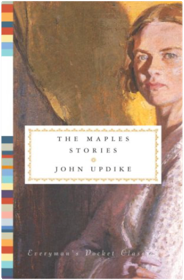 Collected together for the first time in hardcover, these eighteen classic stories from across John Updike’s career form a luminous chronicle of the life and times of one marriage in all its rich emotional complexity. In 1956, Updike published a story, “Snowing in Greenwich Village,” about a young couple, Joan and Richard Maple, at the beginning of their marriage. Over the next two decades, he returned to these characters again and again, tracing their years together raising children, finding moments of intermittent happiness, and facing the heartbreak of infidelity and estrangement. Seventeen Maples stories were collected in 1979 in a paperback edition titled Too Far to Go, prompted by a television adaptation. Now those stories appear in hardcover for the first time, with the addition of a later story, “Grandparenting,” which returns us to the Maples’s lives long after their wrenching divorce. Olinger Stories 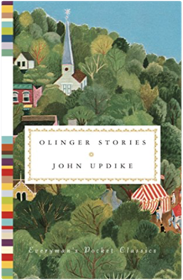 Rabbit Angstrom : The Four Novels : Rabbit, Run, Rabbit Redux, Rabbit Is Rich, Rabbit at Rest 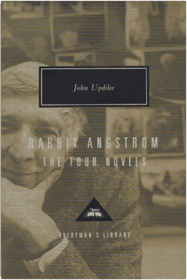 The Complete Henry Bech 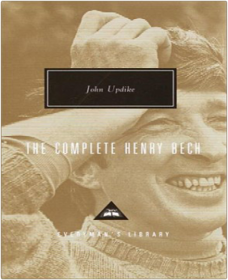 From his birth in 1923 to his belated paternity and public apotheosis as a spry septuagenarian in 1999, Bech plugs away, globetrotting in the company of foreign dignitaries one day and schlepping in tattered tweeds on the college lecture circuit the next. By turns cynical and naïve, wry and avuncular, and always amorous, he is Updike’s most endearing confection—a Lothario, a curmudgeon, and a winsome literary icon all in one. A perfect forum for Updike's limber prose, The Complete Henry Bech is an arch portrait of the literary life in America from an incomparable American writer. Three Novels: Journey to the Center of the Earth / Twenty Thousand Leagues Under the Sea / Round the World in Eighty Days 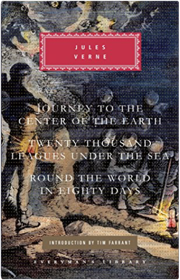 The Aeneid (Everyman's Library) 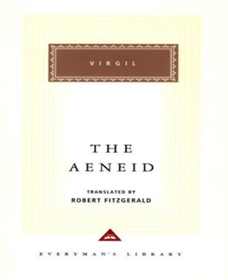 Candide and Other Stories 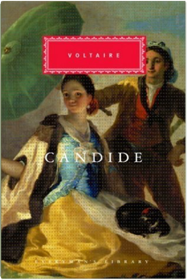 Eliot: Poems (Everyman's Library Pocket Poets) 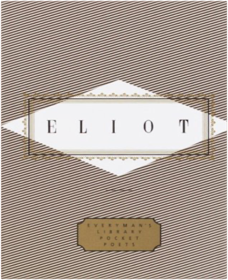 Black Mischief, Scoop, The Loved One, The Ordeal of Gilbert Pinfold 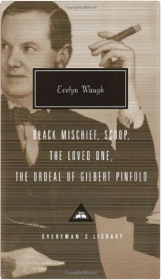 In honor of the hundredth anniversary of Evelyn Waugh’s birth, four of the master’s most wickedly scathing comedies are here brought together in one volume. Black Mischief is Waugh at his most mischievous–inventing a politically loopy African state as a means of pulverizing politics at home. In Scoop, it is journalism’s turn to be drawn and quartered. The Loved One (which became a famously hilarious film) sends up the California mortuary business. And The Ordeal of Gilbert Pinfold is a burst of fictionalized autobiography in which Pinfold goes mad, more or less, on board an ocean liner. Here in four short–very different–novels are the mordant wit, inspired farce, snapping dialogue, and amazing characters that are the essence of everything Waugh ever wrote. Brideshead Revisited (Everyman's Library) 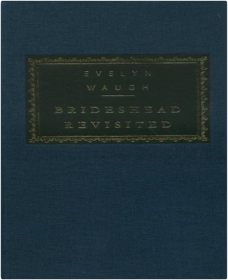 The Complete Short Stories 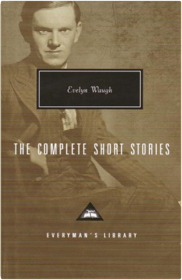 Evelyn Waugh's short stories are the marvelous, concentrated riffs of his comic genius, revealing in miniaturized perfection all the elements that made him the greatest comic writer of our century. We find in them Waugh's almost superhuman technical skill as a writer and his quicksilver attentiveness to the minutiae of human absurdity, as well as his worldly knowledge, his tenderness, his perceptive compassion, and his sophisticated, disabused, but nevertheless forceful idealism. The thirty-nine stories collected here include such small masterpieces as "Mr. Loveday's Little Outing" and "Scott-King's Modern Europe"; an alternative ending to Waugh's novel A Handful of Dust; a "missing chapter" in the life of Charles Ryder, the hero of Brideshead Revisited; and two linked stories, remnants of an abandoned novel that Waugh considered his best writing. This edition contains the original illustrations to "Love Among the Ruins," as well as more than thirty graphics produced by the author as an Oxford undergraduate in the 1920s. Decline and Fall (Everyman's Library Classics) 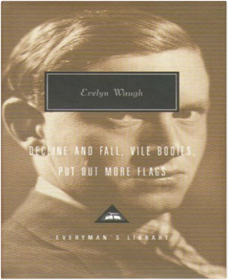 The Sword of Honour Trilogy 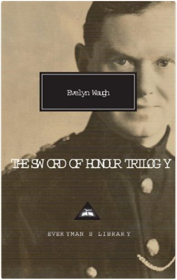 This trilogy of novels about World War II, largely based on his own experiences as an army officer, is the crowning achievement of Evelyn Waugh’s career. Its central character is Guy Crouchback, head of an ancient but decayed Catholic family, who at first discovers new purpose in the challenge to defend Christian values against Nazi barbarism, but then gradually finds the complexities and cruelties of war too much for him. Yet, though often somber, the Sword of Honour trilogy is also a brilliant comedy, peopled by the fantastic figures so familiar from Waugh’s early satires. The deepest pleasures these novels afford come from observing a great satiric writer employ his gifts with extraordinary subtlety, delicacy, and human feeling, for purposes that are ultimately anything but satiric. Waugh Abroad: The Collected Travel Writing 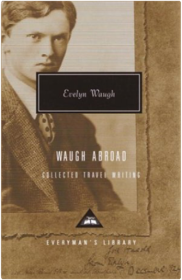 Thirty years’ worth of Evelyn Waugh’s inimitable travel writings have been gathered together for the first time in one volume. Waugh’s accounts of his travels–spanning the years from 1929 to 1958–describe journeys through the West Indies, Mexico, South America, the Holy Land, and Africa. And just as his travels informed his fiction, his novelist’s sensibility is apparent in each of these pieces. Waugh pioneered the genre of modern travel writing in which the comic predicament of the traveler is as central as the world he encounters. He wrote with as sharp an eye for folly as for foliage, and a delight in the absurd, not least where his own comfort and dignity are concerned. From his fresh take on the well-traveled and hence already “fully labeled” Mediterranean region in Labels, to a close-up view of Haile Selassie’s coronation in Remote People, from a comically miserable stint in British Guiana. The Time Machine, The Invisible Man, The War of the Worlds 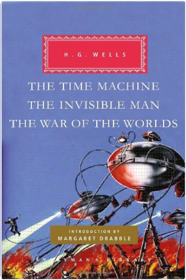 The first great novel to imagine time travel, The Time Machine (1895) follows its scientist narrator on an incredible journey that takes him finally to Earth’s last moments—and perhaps his own. The scientist who discovers how to transform himself in The Invisible Man (1897) will also discover, too late, that he has become unmoored from society and from his own sanity. The War of the Worlds (1898)—the seminal masterpiece of alien invasion adapted by Orson Welles for his notorious 1938 radio drama, and subsequently by several filmmakers—imagines a fierce race of Martians who devastate Earth and feed on their human victims while their voracious vegetation, the red weed, spreads over the ruined planet. Here are three classic science fiction novels that, more than a century after their original publication, show no sign of losing their grip on readers’ imaginations. The Age of Innocence 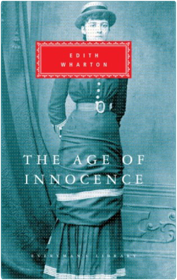 The Age of Innocence, one of Edith Wharton’s most renowned novels and the first by a woman to win the Pulitzer Prize, exquisitely details the struggle between love and responsibility through the experiences of men and women in Gilded Age New York. The novel follows Newland Archer, a young, aristocratic lawyer engaged to the cloistered, beautiful May Welland. When May’s disgraced cousin Ellen arrives from Europe, fleeing her marriage to a Polish Count, her worldly, independent nature intrigues Archer, who soon falls in love with her. Trapped by his passionless relationship with May and the social conventions that forbid a relationship with Ellen, Archer finds himself torn between possibility and duty. Wharton’s profound understanding of her characters’ lives makes the triangle of Archer, May, and Ellen come to life with an irresistible urgency. A wry, incisive look at the ways in which love and emotion must negotiate the complex rules of high society, The Age of Innocence is one of Wharton's finest, most illuminative works. With an introduction by Peter Washington Ethan Frome, Summer, Bunner Sisters 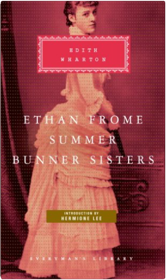 These three brilliantly wrought, tragic novellas explore the repressed emotions and destructive passions of working-class people far removed from the social milieu usually inhabited by Edith Wharton's characters. Ethan Frome is one of Wharton's most famous works; it is a tightly constructed and almost unbearably heartbreaking story of forbidden love in a snowbound New England village. Summer, also set in rural New England, is often considered a companion to Ethan Frome-Wharton herself called it “the hot Ethan”-in its portrayal of a young woman's sexual and social awakening. Bunner Sisters takes place in the narrow, dusty streets of late nineteenth-century New York City, where the constrained but peaceful lives of two spinster shopkeepers are shattered when they meet a man who becomes the unworthy focus of all their pent-up hopes. All three of these novellas feature realistic and haunting characters as vivid as any Wharton ever conjured, and together they provide a superb introduction to the shorter fiction of one of our greatest writers. The House of Mirth 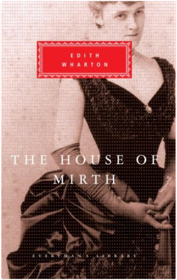 London Stories 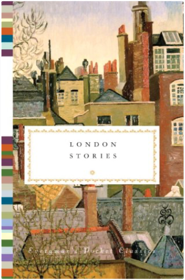 Acclaimed historian Jerry White has collected some twenty-six stories to illustrate the extraordinary diversity of both London life and writing over the past four centuries, from Shakespeare’s day to the present. These are stories of fact and fiction and occasionally something in between, some from well-known voices and others practically unknown. Here are dramatic views of such iconic events as the plague, the Great Fire of London, and the Blitz, but also William Thackeray’s account of going to see a man hanged, Thomas De Quincey’s friendship with a teenaged prostitute, and Doris Lessing’s defense of the Underground. This literary London encompasses the famous Baker Street residence of Conan Doyle’s Sherlock Holmes and the bombed-out moonscape of Elizabeth Bowen’s wartime streets, Charles Dicken’s treacherous River Thames and Frederick Treves’s tragic Elephant Man. Graham Greene, Jean Rhys, Muriel Spark, and Hanif Kureishi are among the many great writers who give us their varied Londons here, revealing a city of boundless wealth and ragged squalor, of moving tragedy and riotous joy. (Book Jacket Status: Jacketed) Voss (Everyman's Library (Cloth)) 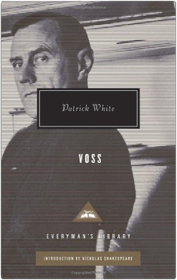 The character of Johann Voss is based on an actual nineteenth-century explorer, Ludwig Leichhardt, who attempted to cross the entire continent of Australia from east to west in 1848 but disappeared in the attempt. With visionary intensity, Patrick White imagines Voss's last journey across the desert and the waterlogged plains of central Australia. But this magisterial novel is also a love story, for the explorer is inextricably bound up with an orphaned young woman whose inner life, like his own, is at odds with the world. In language poetic and passionate yet grounded in shrewd, often comic, social observations and naturalistic portrayals of farmers, convicts, employers, servants, and aborigines, White creates both a spellbinding adventure and a myth for our time. Paris Stories 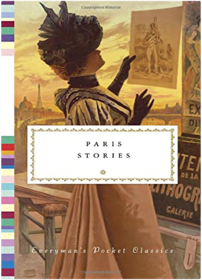 Perhaps no other European city has so captured the imagination of the artistically and romantically minded. Laurence Sterne explores the temptations of the French capital in a teasing study of foreign mores, and Restif de la Bretonne provides an eyewitness account of the horrors and glories of the French Revolution. Hugo, Balzac, Flaubert, and Zola offer fascinating portraits of the growing metropolis’s teeming humanity; the Goncourt brothers chronicle its glittering literary circles; and Huysmans describes a memorable evening at the Folies Bergère. Colette recounts the sensual adventures of a young girl in the decadent Paris of the early twentieth century, while F. Scott Fitzgerald revels in its urban glamour. Jean Rhys’s lost heroines wander from café to café, James Baldwin celebrates the city’s sexual freedoms, and Raymond Queneau gleefully reinvents the language of the street. In more recent decades, Michel Tournier’s North African immigrant walks a camel along the boulevards and Nobel laureate Patrick Modiano nostalgically maps the famed Parisian arrondissements. Theatrical and elegant, seamy and intellectual, Paris has never lost its alluring power, richly evoked in these compelling and seductive tales. Whitman: Poems (Everyman's Library Pocket Poets) 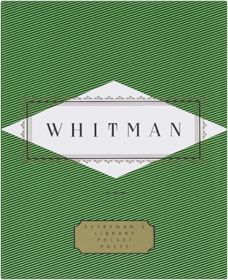 Plays, Prose Writings and Poems (Everyman's Library) 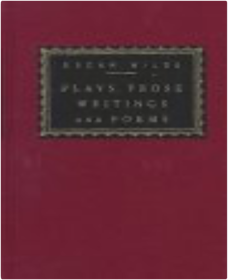 The Best of Wodehouse: An Anthology 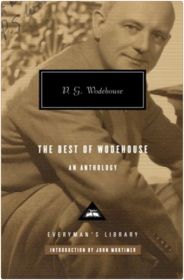 With a New Introduction by John Mortimer P.G. Wodehouse (1881-1975) was perhaps the most widely acclaimed British humorist of the twentieth century. Throughout his career, he brilliantly examined the complex and idiosyncratic nature of English upper-crust society with hilarious insight and wit. The works in this volume provide a wonderful introduction to Wodehouse’s work and his unique talent for joining fantastic plots with authentic emotion. In The Code of the Woosters, Wodehouse’s most famous duo, Bertie Wooster and his unflappable valet Jeeves, risks all to steal a cream jug. Uncle Fred in the Springtime, part of the famous Blandings Castle series, follows Uncle Fred as he attempts to ruin the Duke of Blandings while he is preoccupied with his favorite pig. Fourteen stories feature some of Wodehouse’s most memorable characters, and three autobiographical pieces provide a revealing look into Wodehouse’s life. With his gift for hilarity and his ever-human tone, Wodehouse and his work have never felt more lively. A Room of One's Own 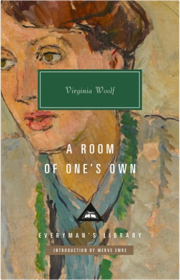 Mrs. Dalloway (Everyman's Library (Cloth)) 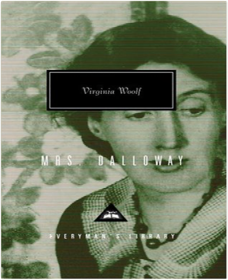 As Mrs. Dalloway prepares for the party she is giving that evening, a series of events intrudes on her composure. Her husband is invited, without her, to lunch with Lady Bruton (who, Clarissa notes anxiously, gives the most amusing luncheons). Meanwhile, Peter Walsh appears, recently from India, to criticize and confide in her. His sudden arrival evokes memories of a distant past, the choices she made then, and her wistful friendship with Sally Seton. Woolf then explores the relationships between women and men, and between women, as Clarissa muses, "It was something central which permeated; something warm which broke up surfaces and rippled the cold contact of man and woman, or of women together.... Her relation in the old days with Sally Seton. Had not that, after all, been love?" While Clarissa is transported to past afternoons with Sally, and as she sits mending her green dress, Warren Smith catapults desperately into his delusions. Although his troubles form a tangent to Clarissa's web, they undeniably touch it, and the strands connecting all these characters draw tighter as evening deepens. As she immerses us in each inner life, Virginia Woolf offers exquisite, painful images of the past bleeding into the present, of desire overwhelmed by society's demands. —Joannie Kervran Stangeland Orlando: Introduction by Jeanette Winterson 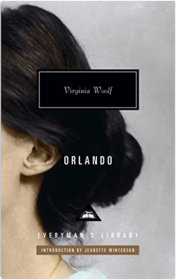 To the Lighthouse (Everyman's Library (Cloth)) 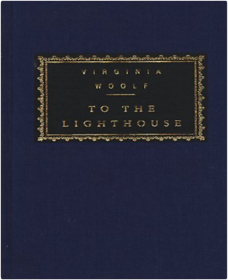 Though its fame as an icon of twentieth-century literature rests primarily on the brilliance of its narrative technique and the impressionistic beauty of its prose, To the Lighthouse is above all the story of a quest, and as such it possesses a brave and magical universality. Observed across the years at their vacation house facing the gales of the North Atlantic, Mrs. Ramsay and her family seek to recapture meaning from the flux of things and the passage of time. Though it is the death of Mrs. Ramsay on which the novel turns, her presence pervades every page in a poetic evocation of loss and memory that is also a celebration of domestic life and its most intimate details. Virginia Woolf’s great book enacts a powerful allegory of the creative consciousness and its momentary triumphs over fleeting material life. |


Delicious Library
Collection Total:
3,640 Items
3,640 Items
Last Updated:
Nov 2, 2025
Nov 2, 2025


 Made with Delicious Library
Made with Delicious Library